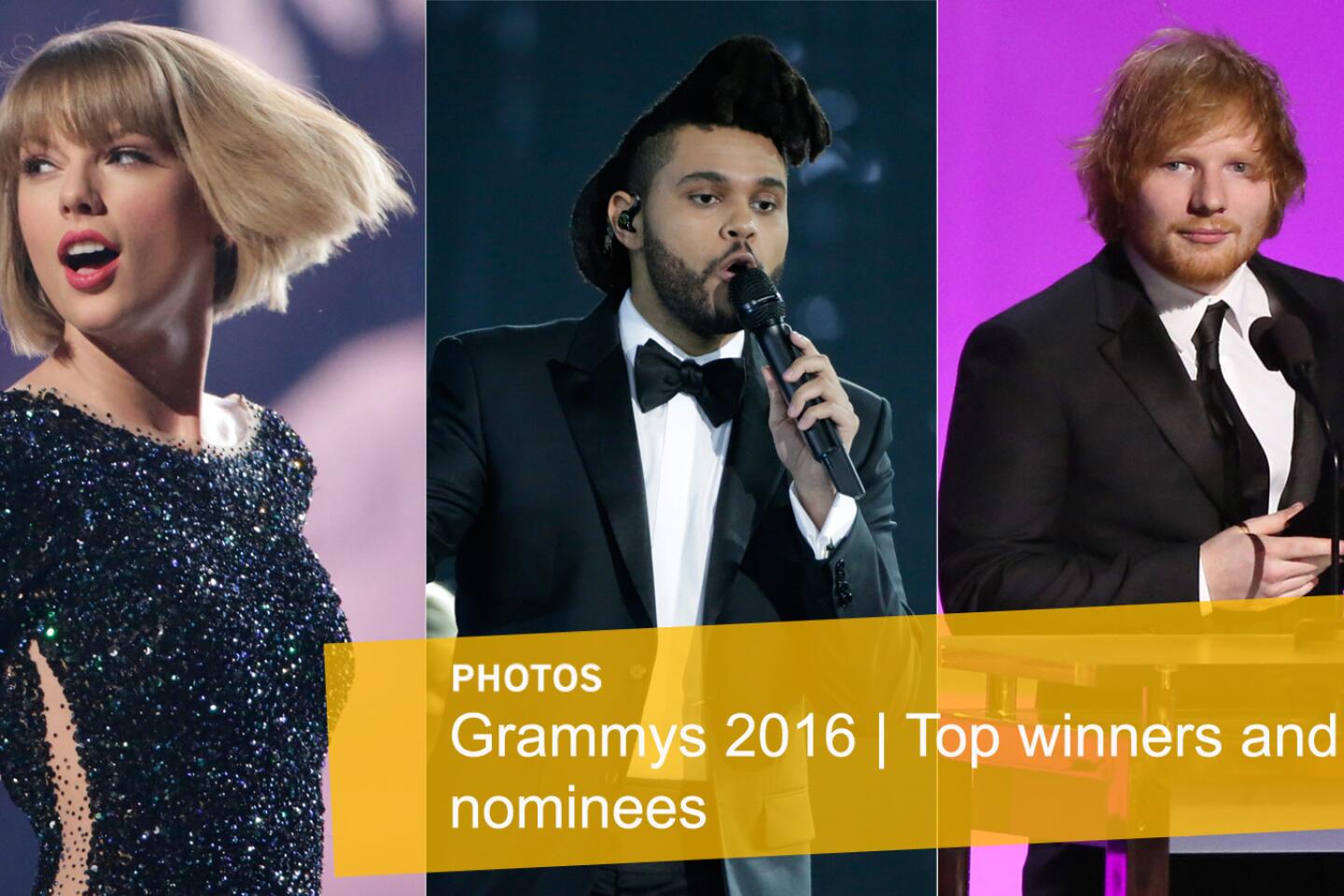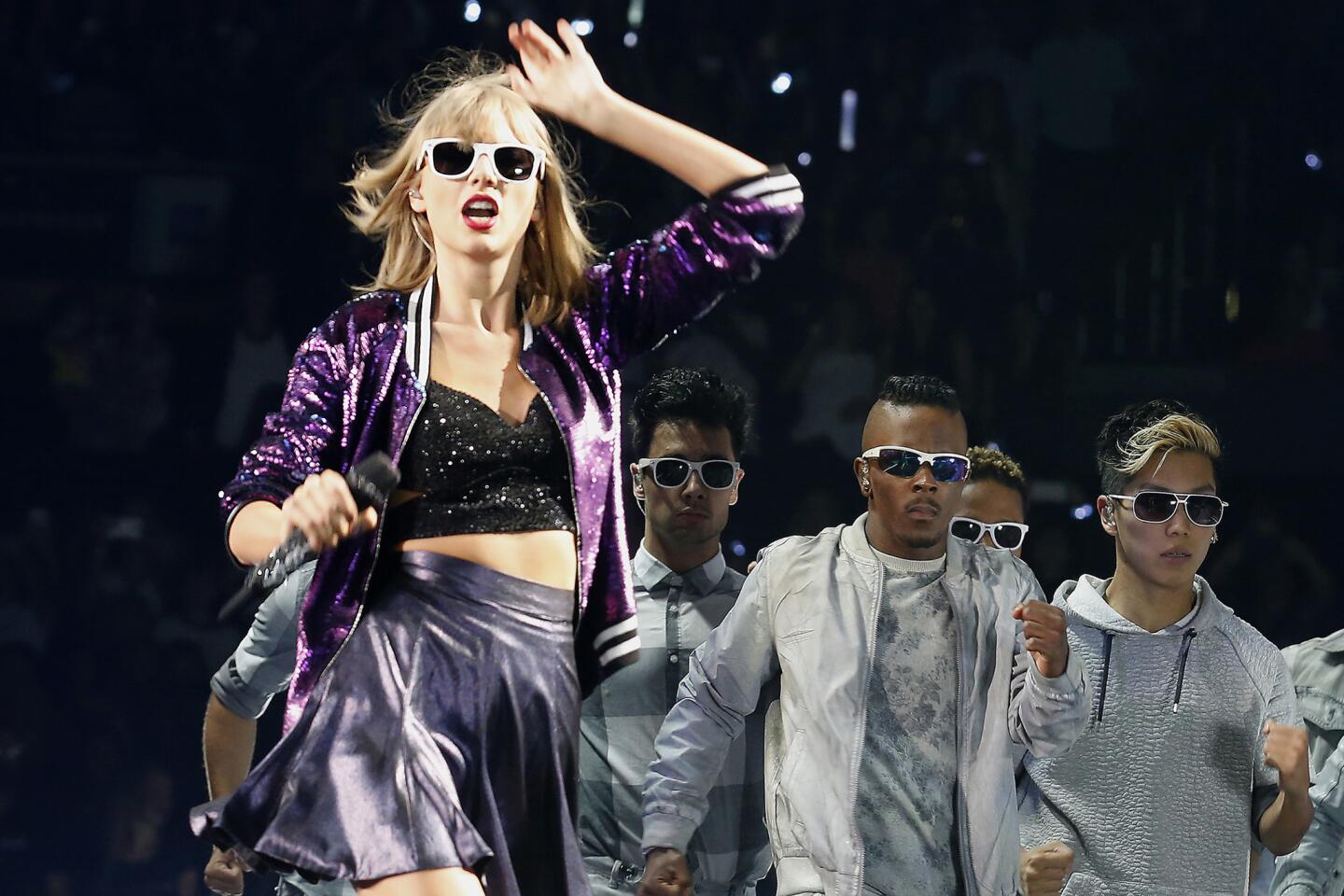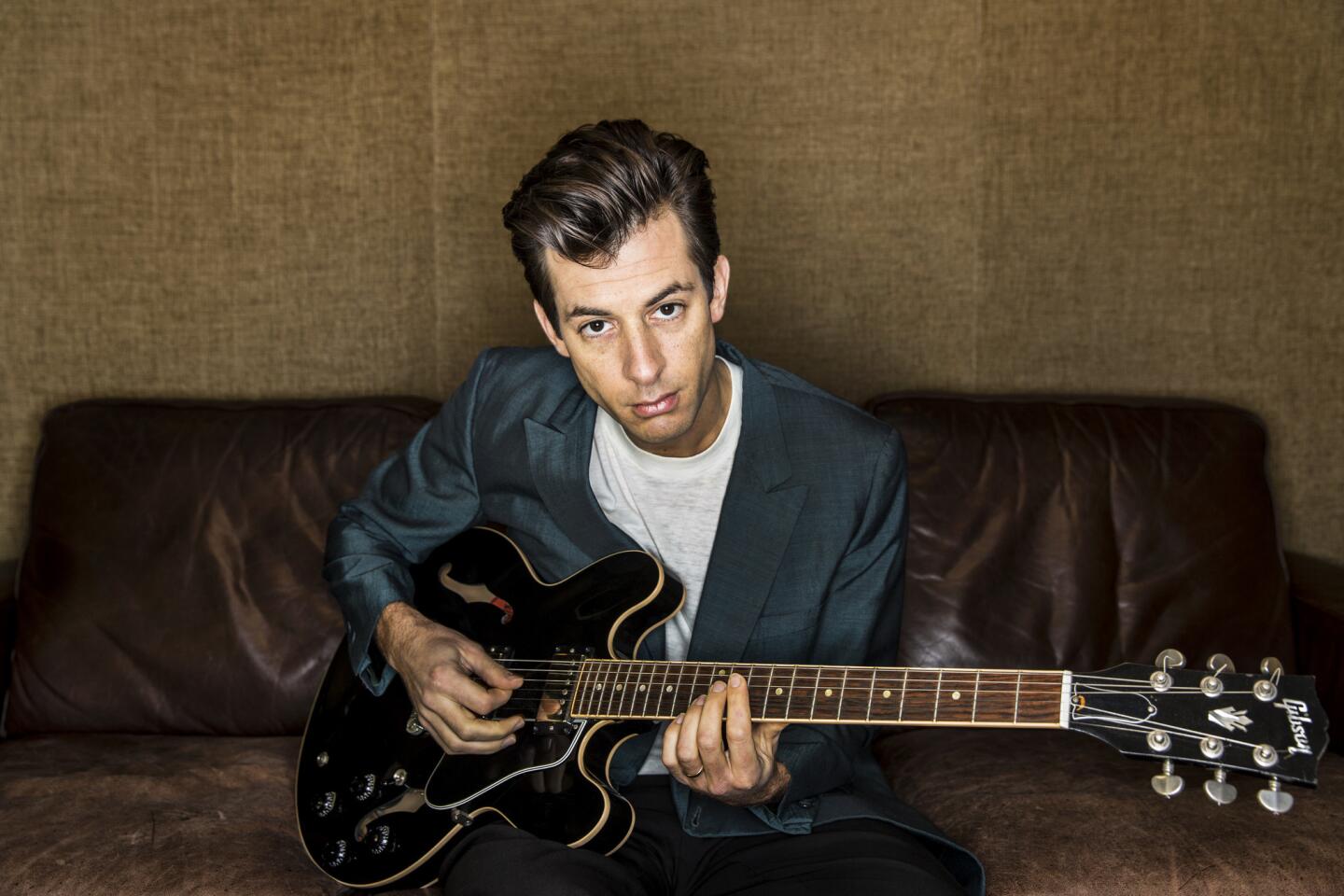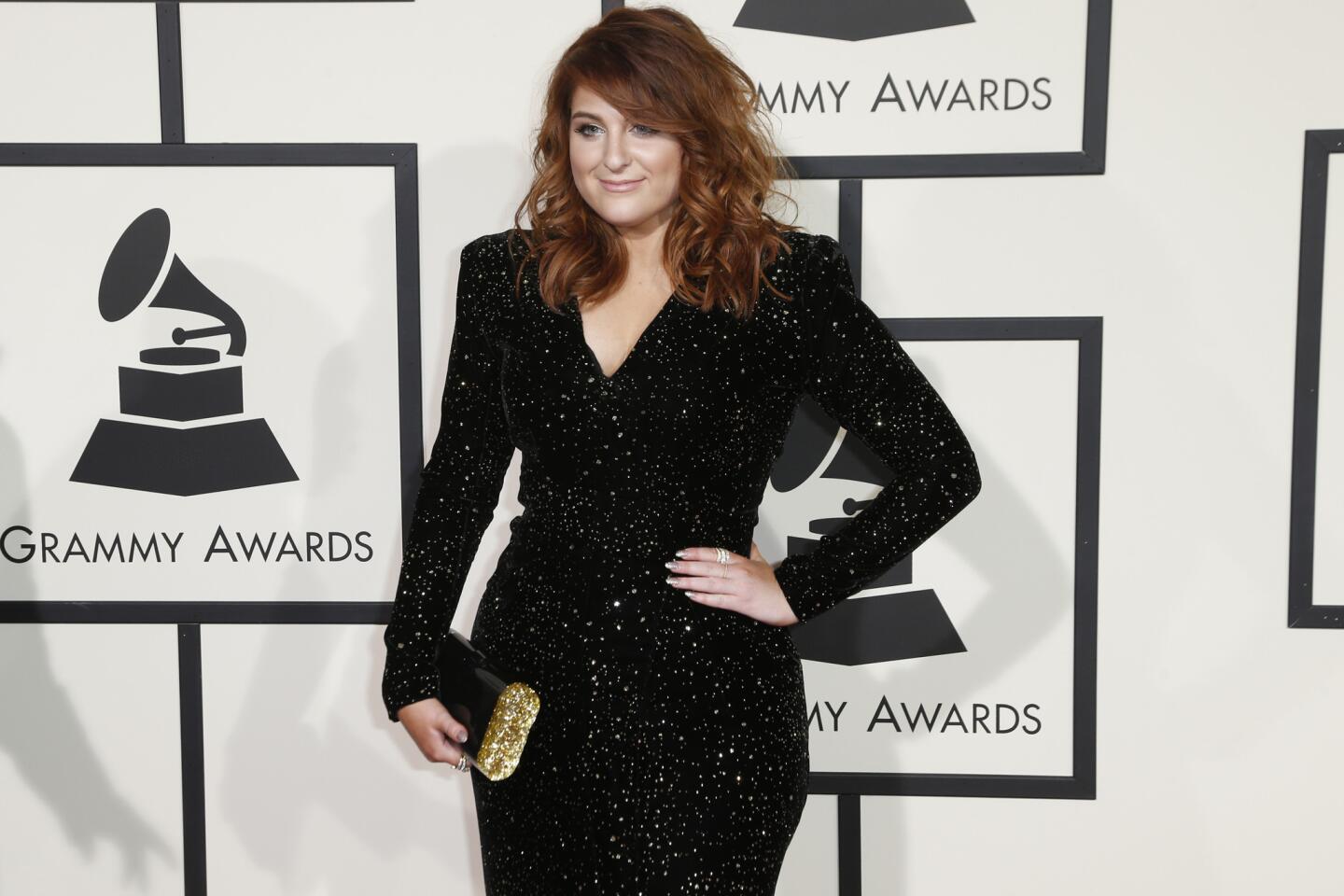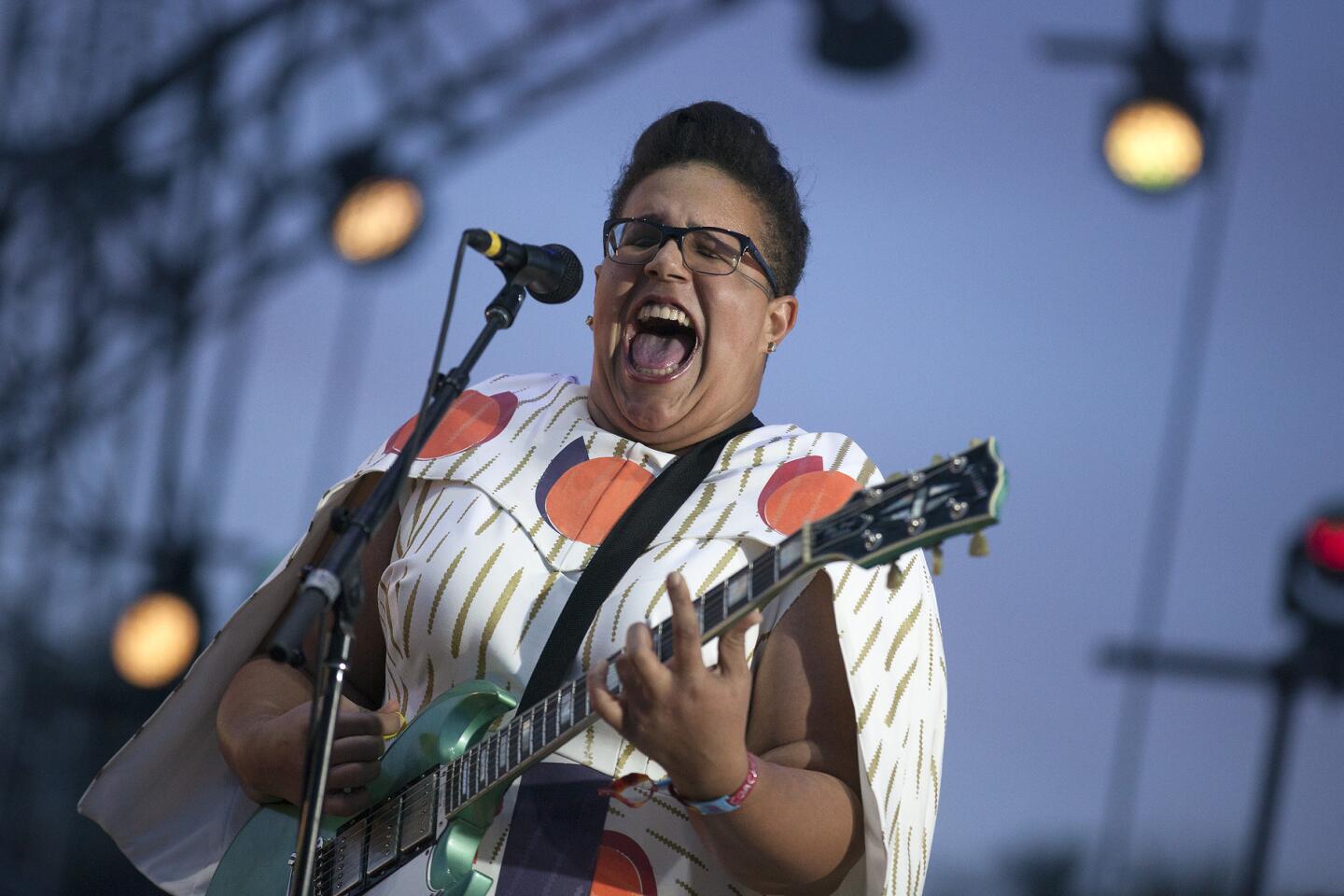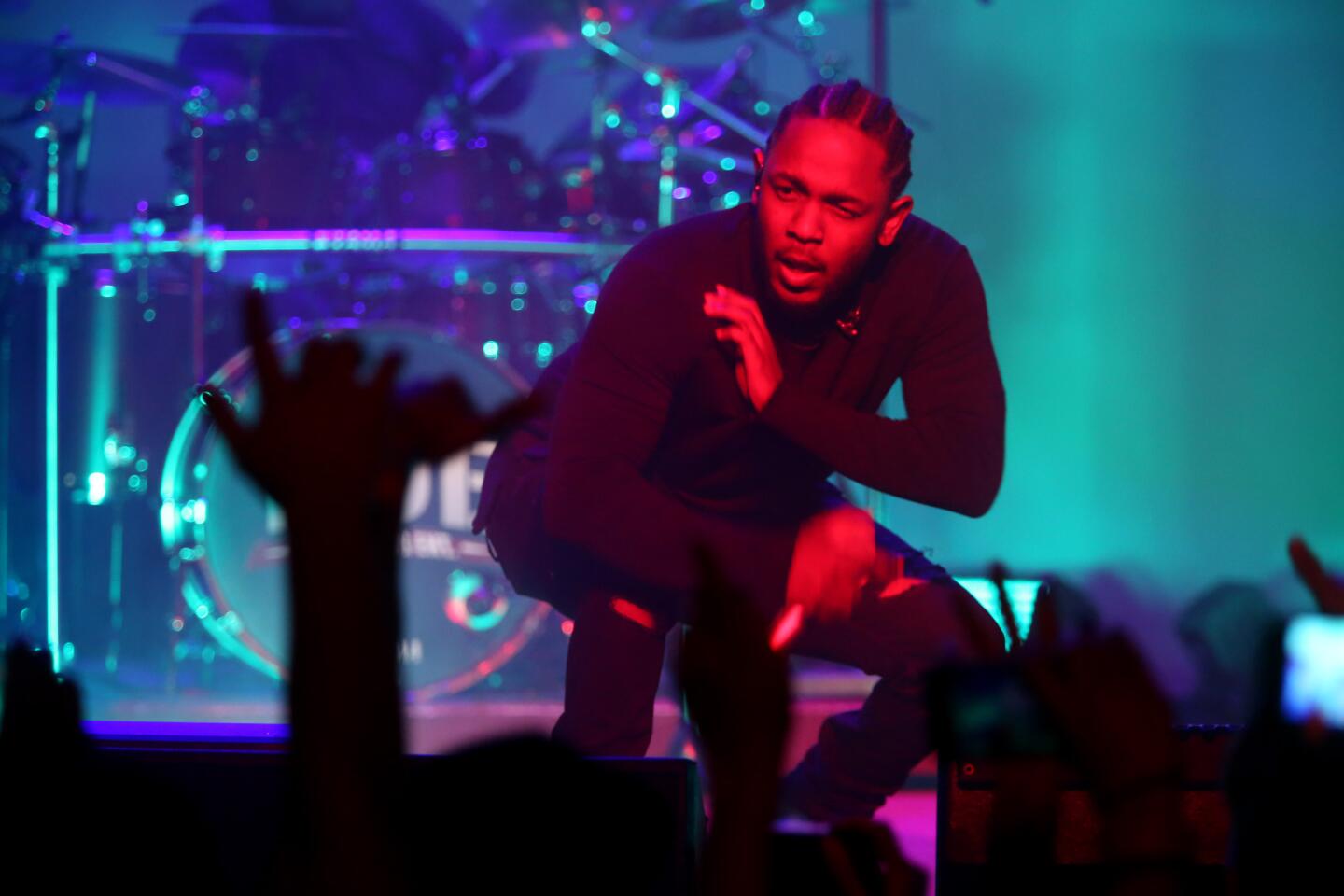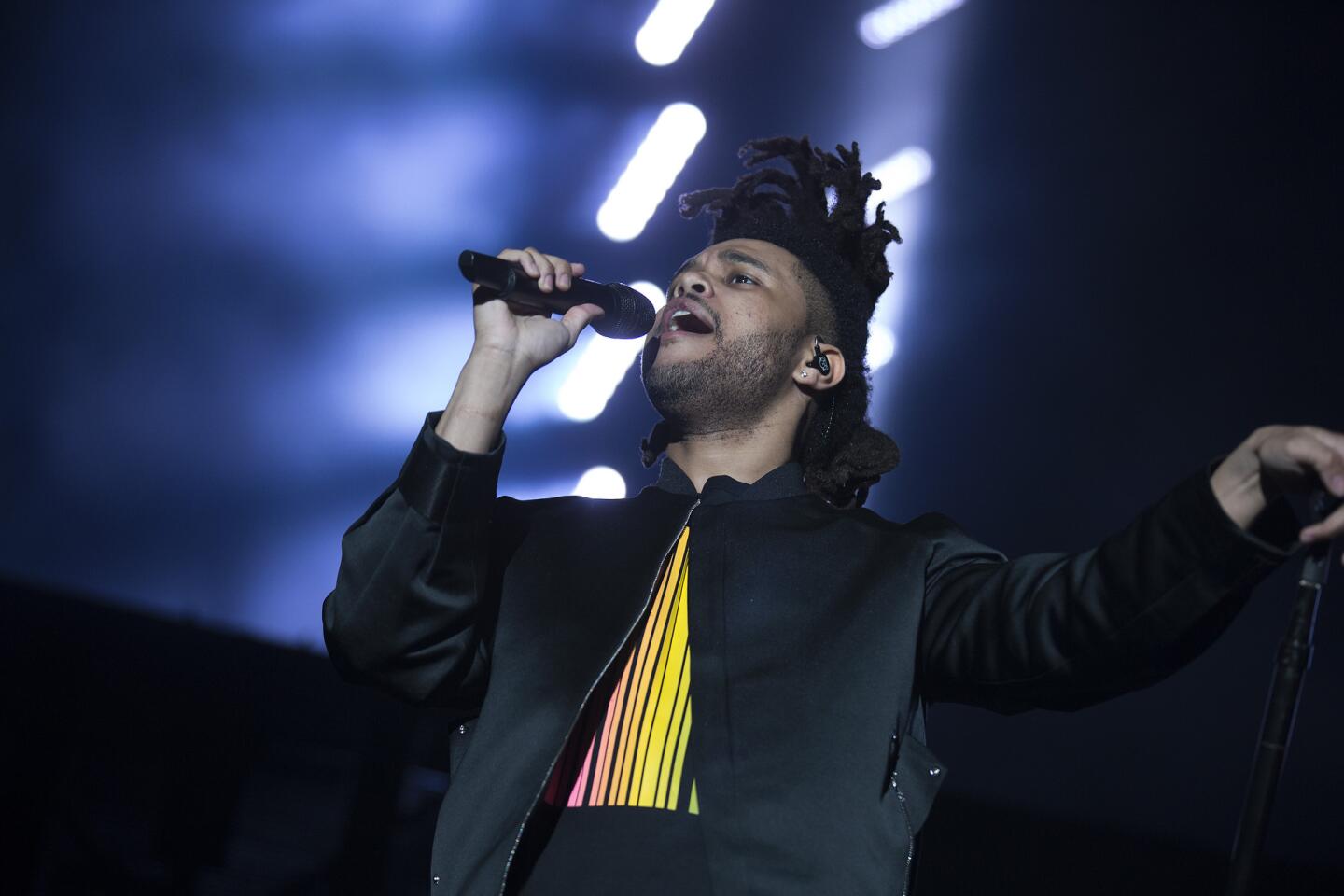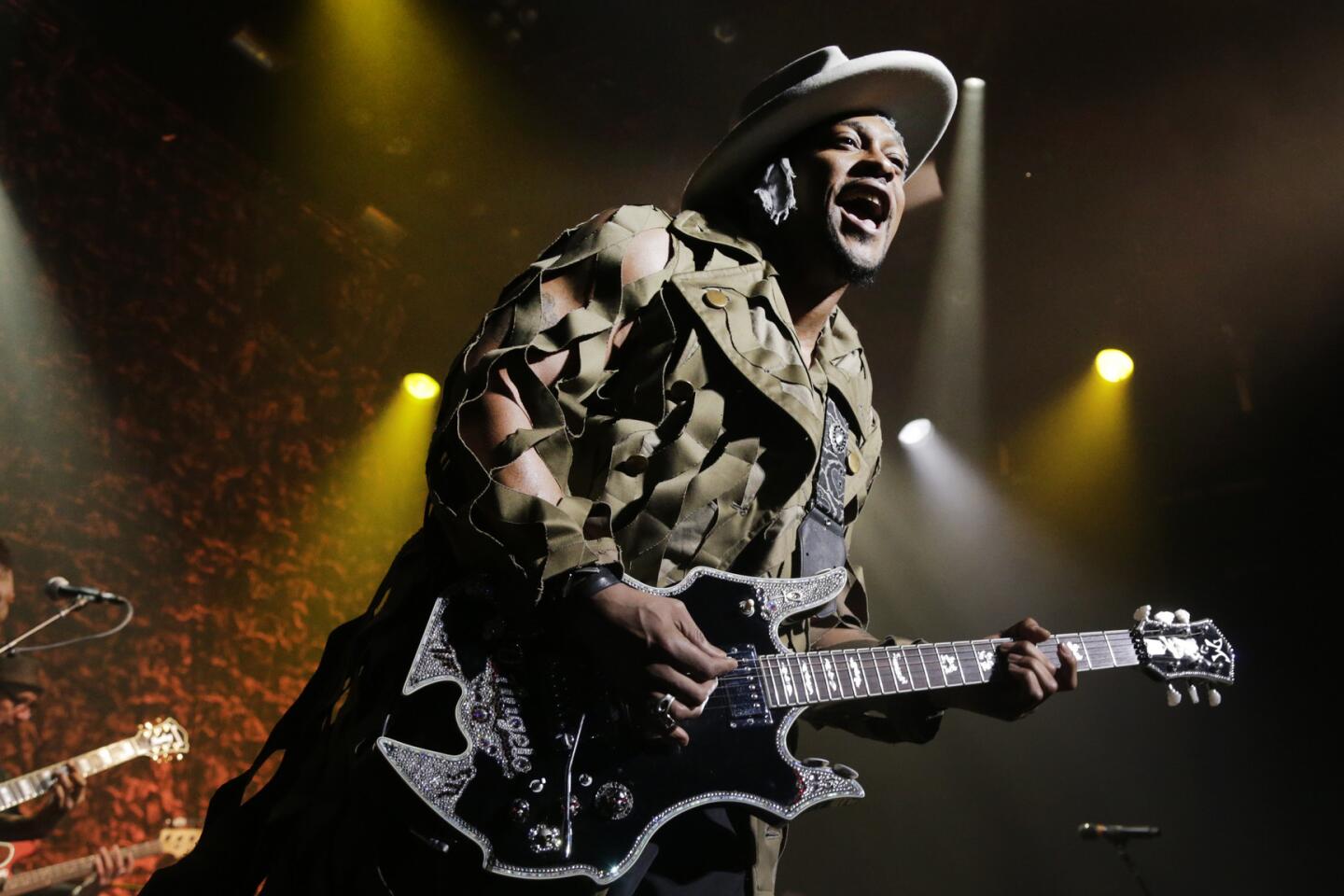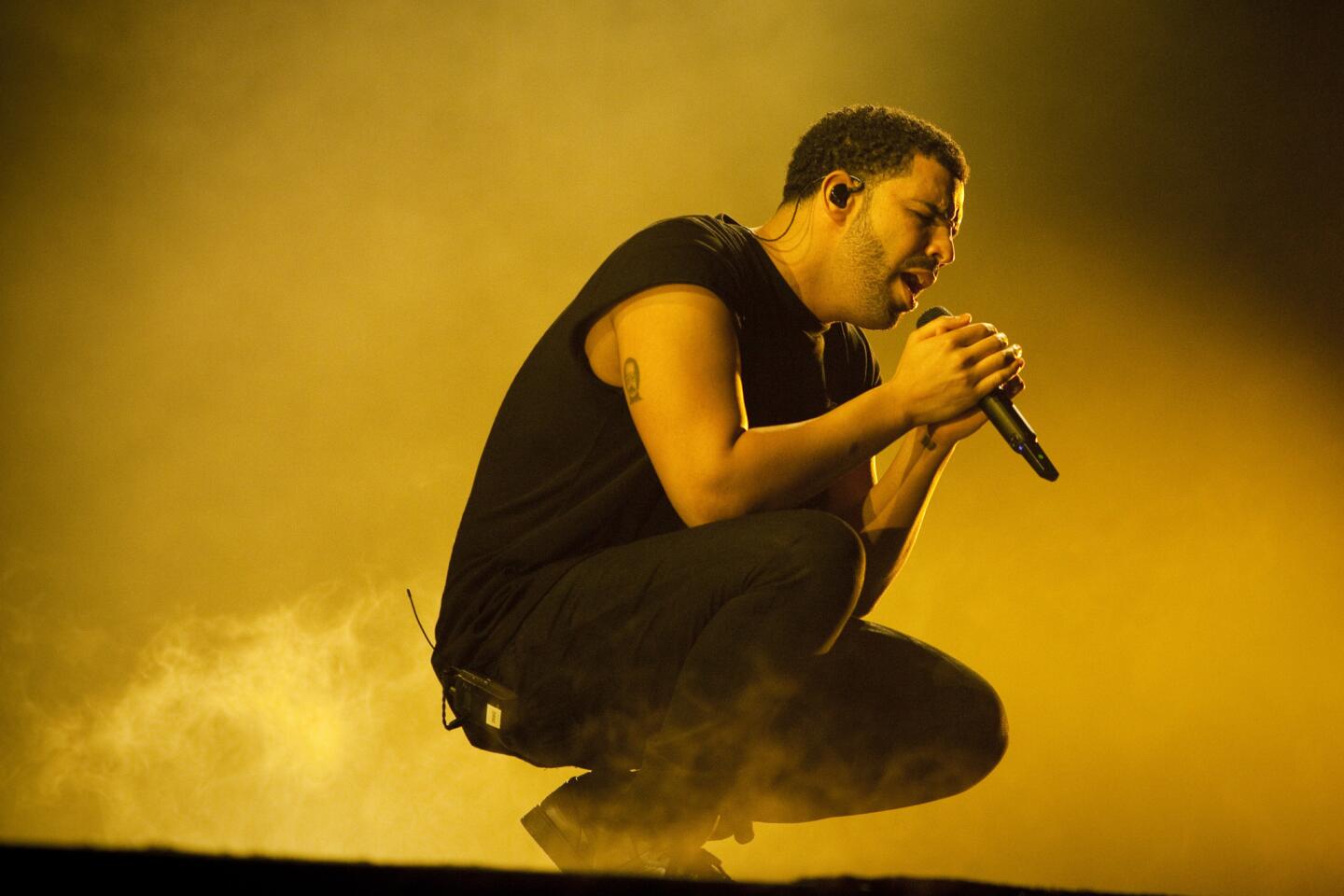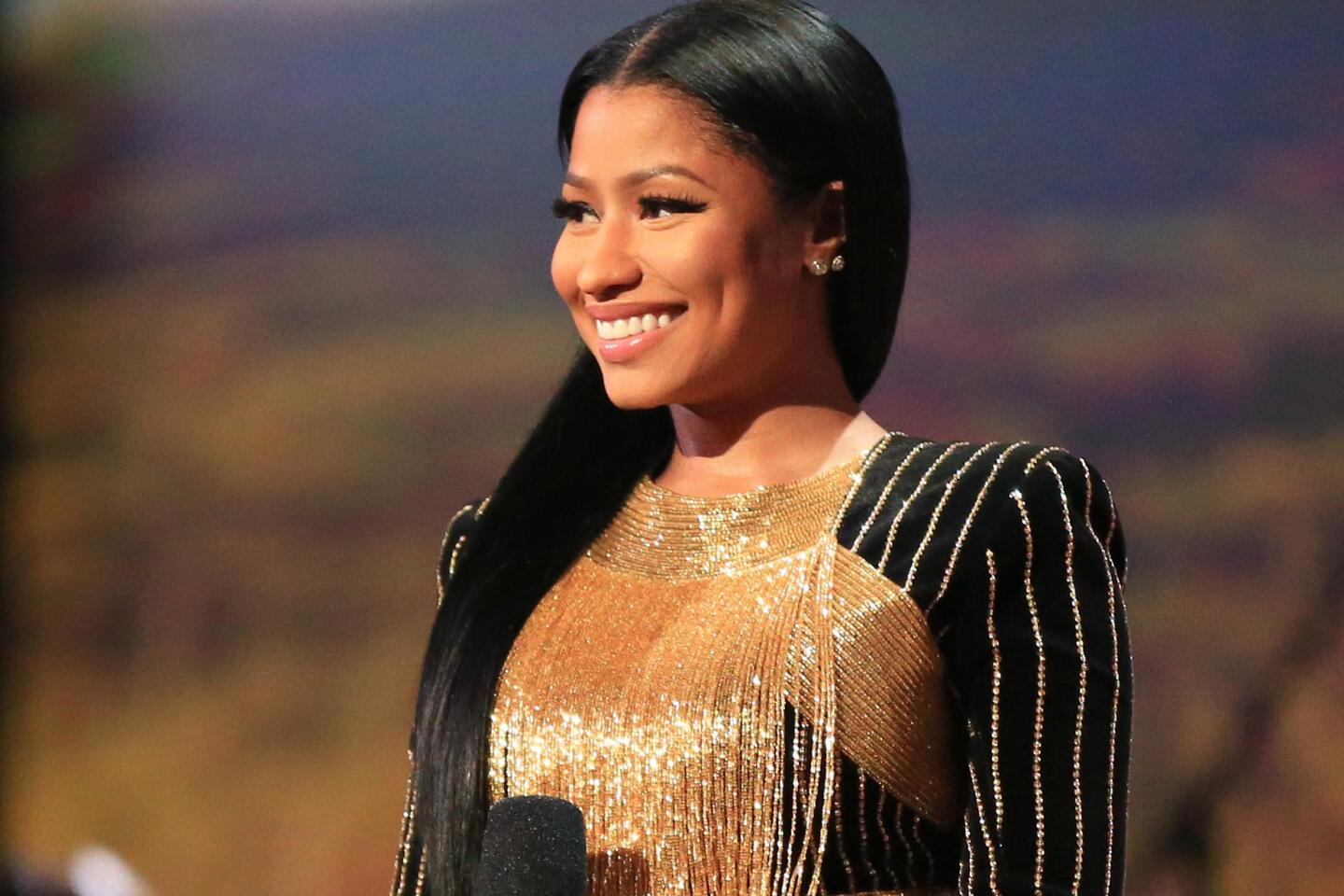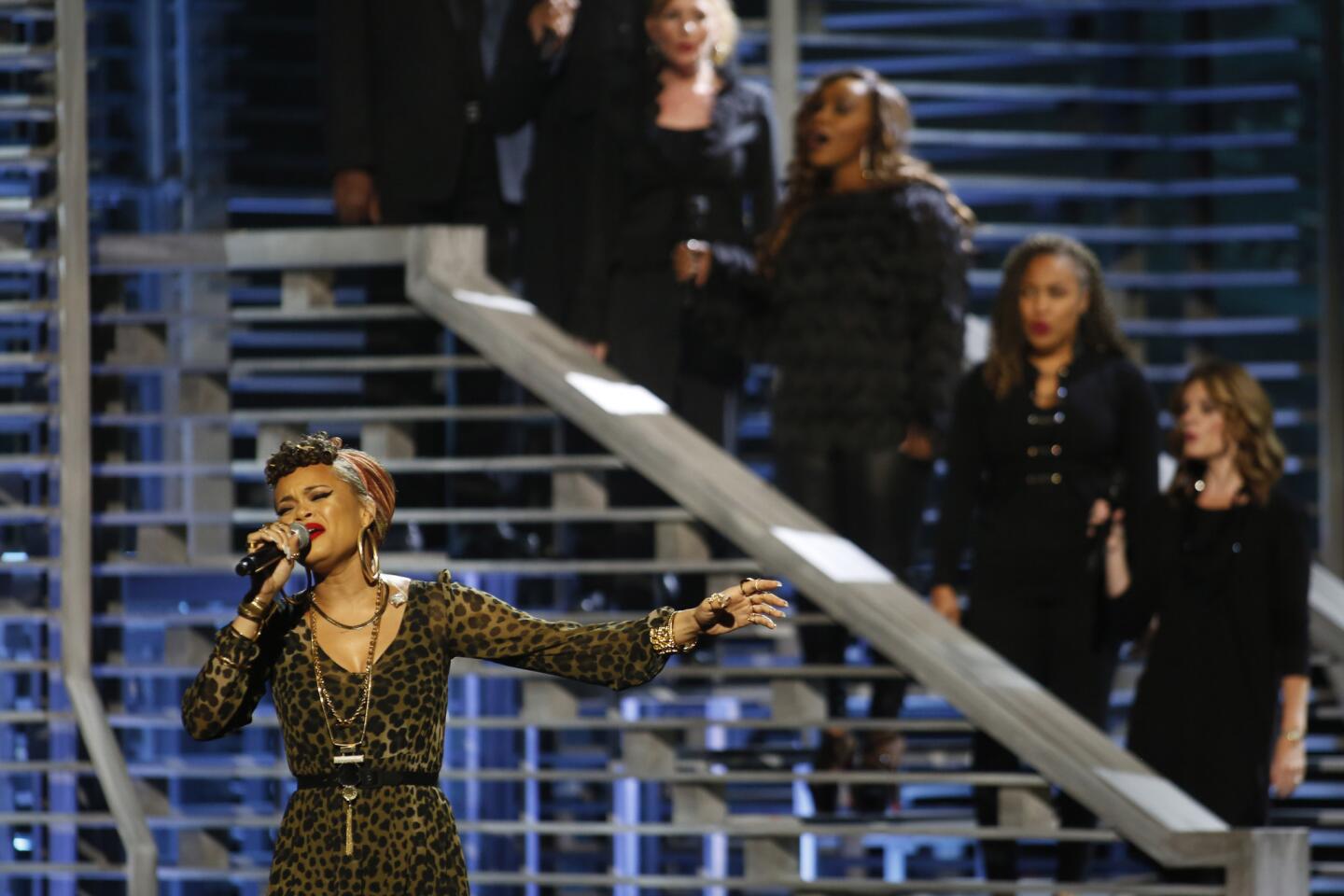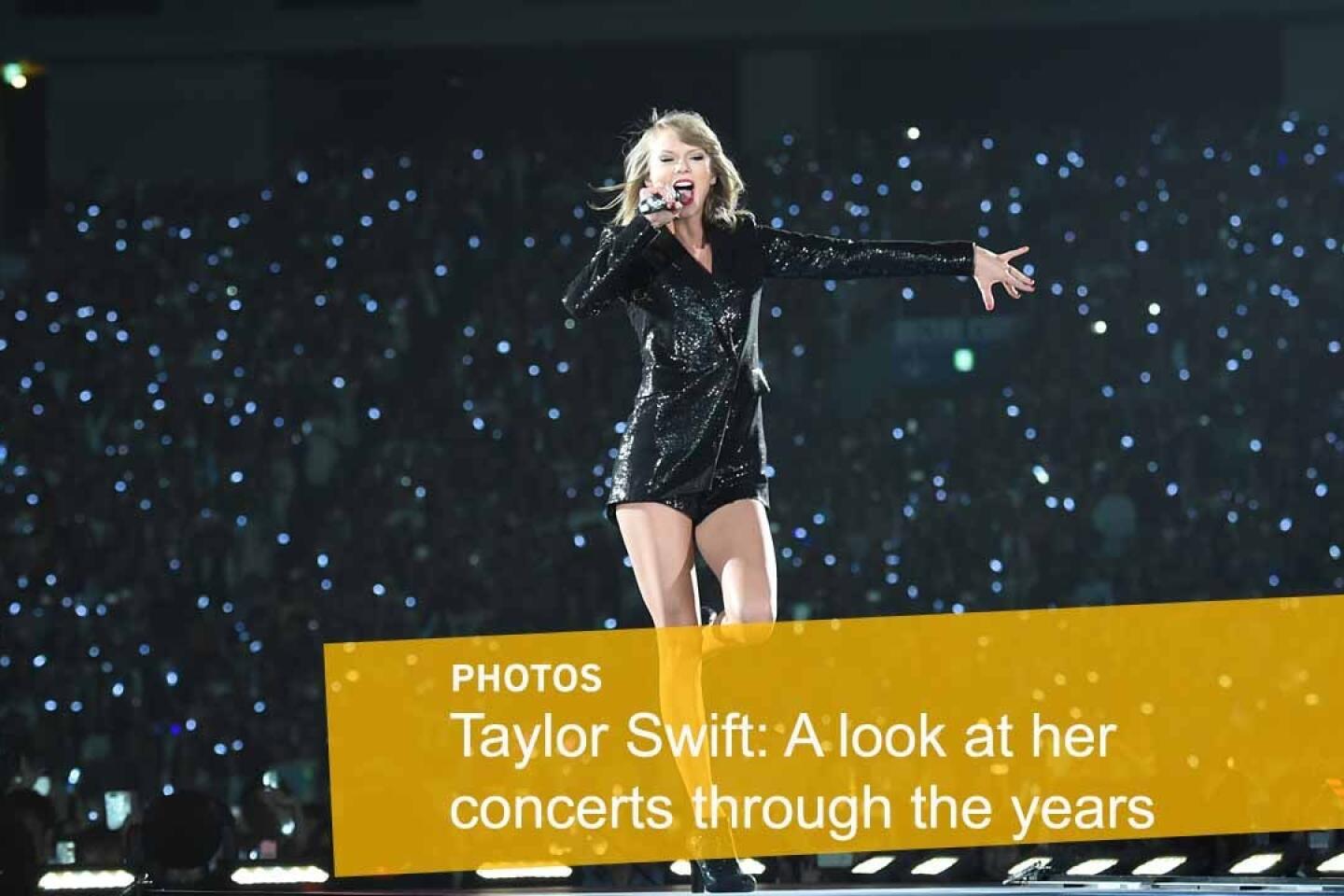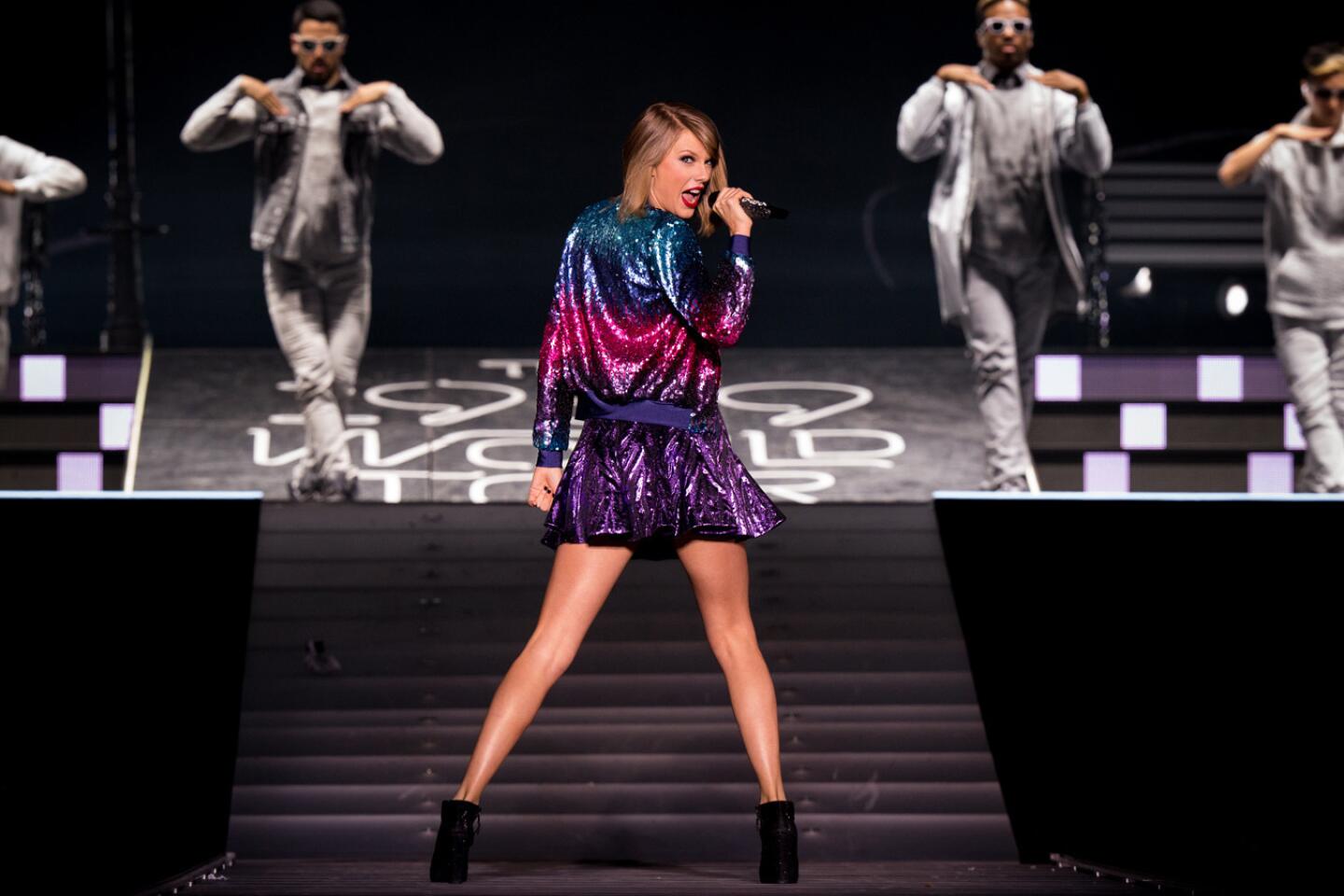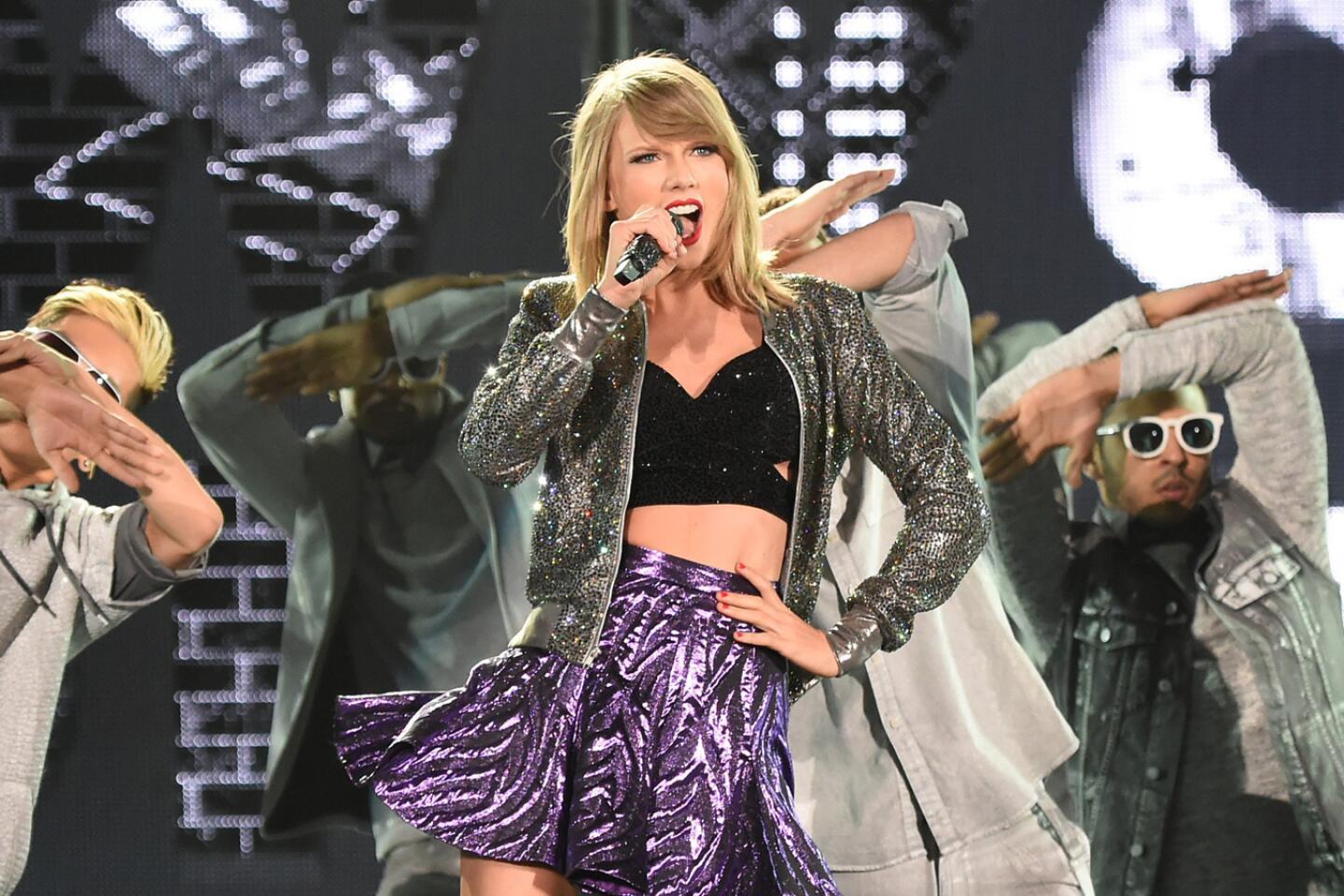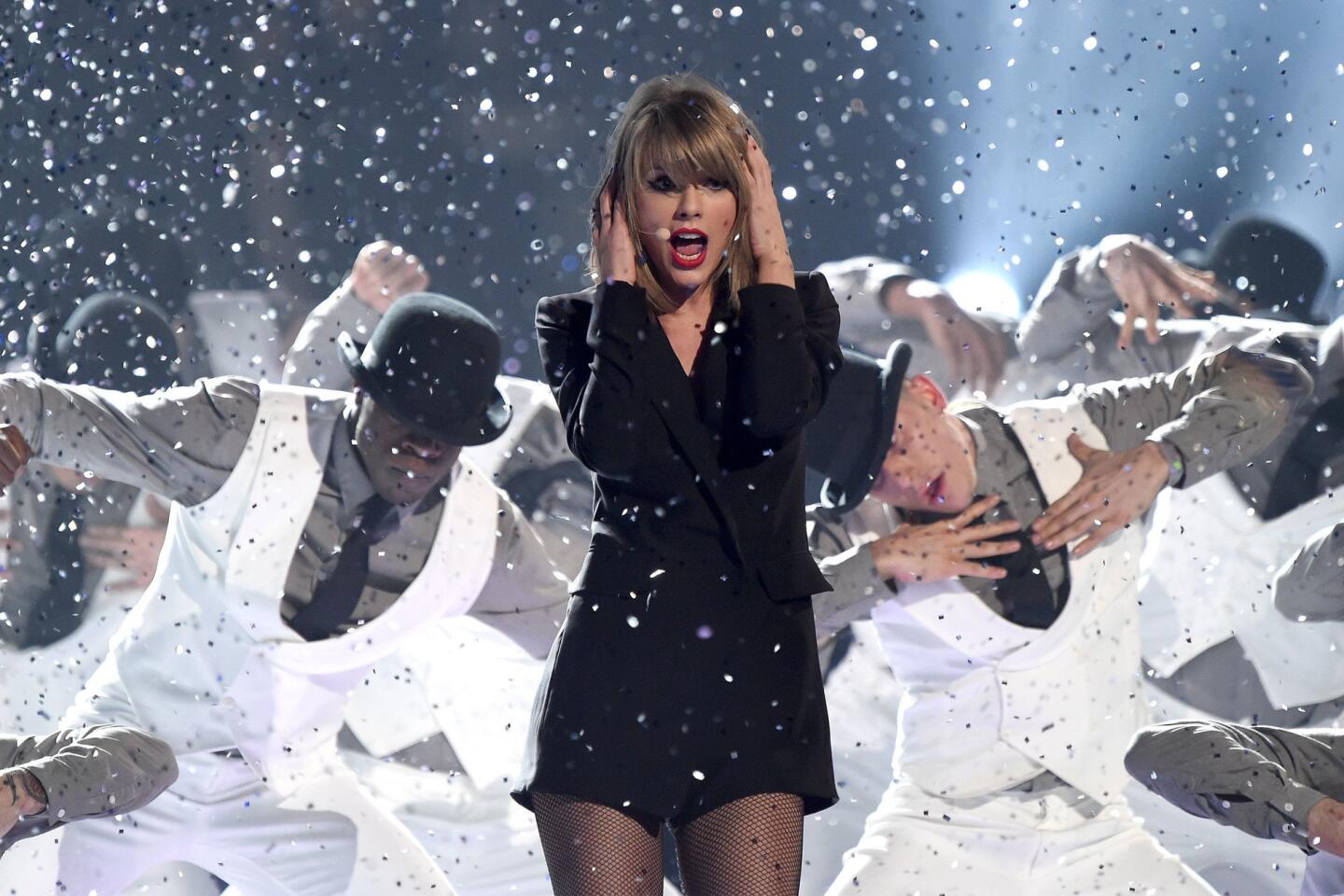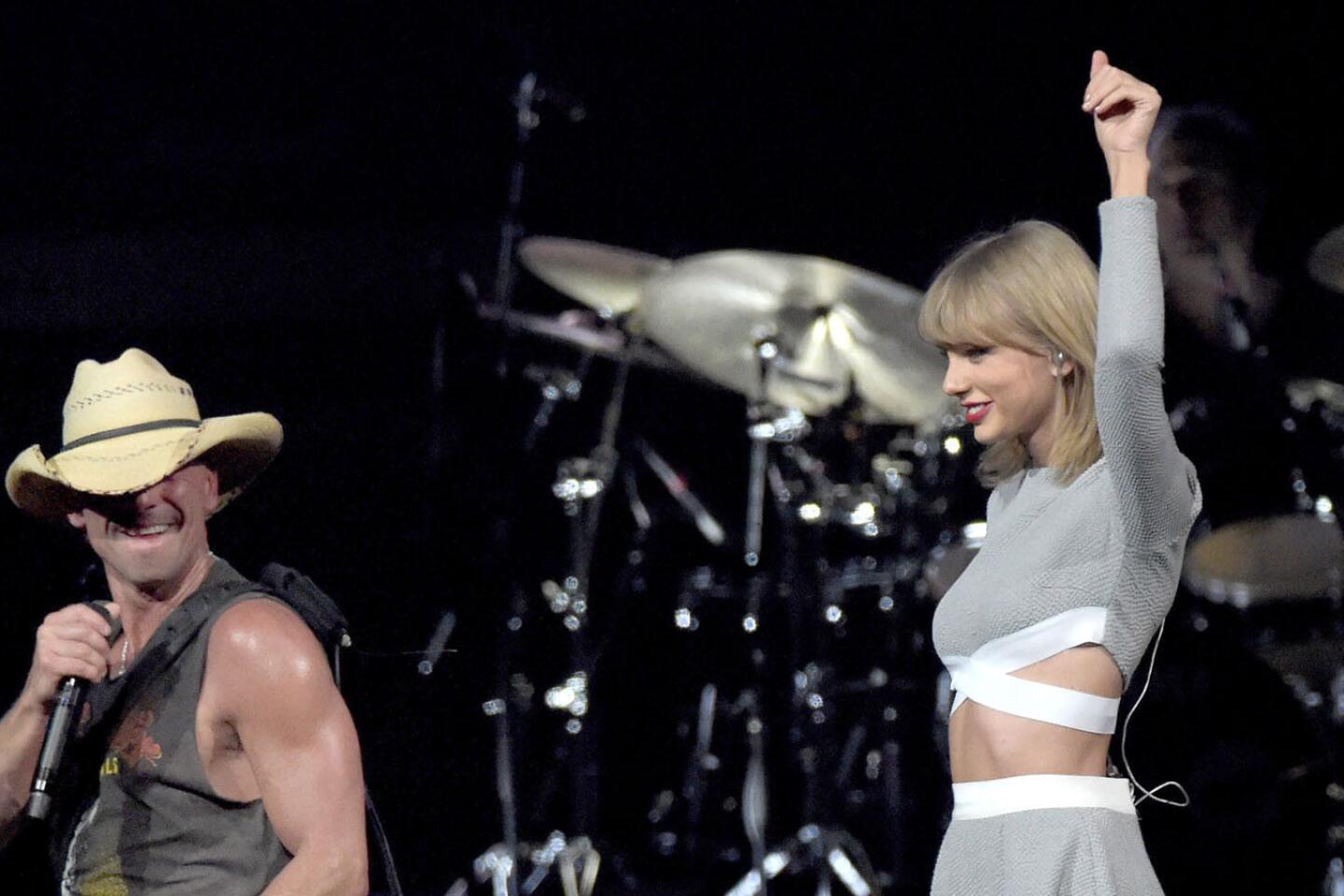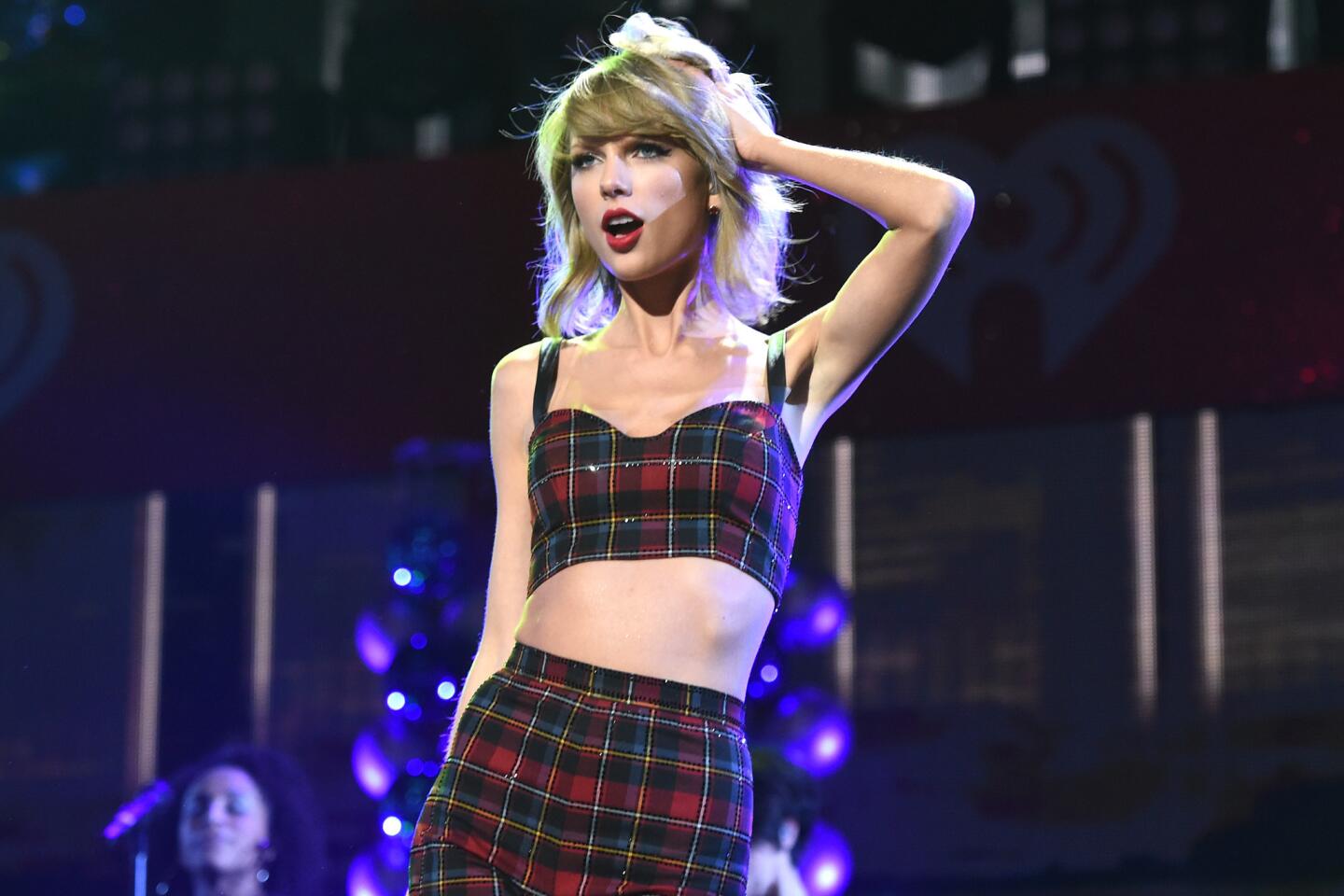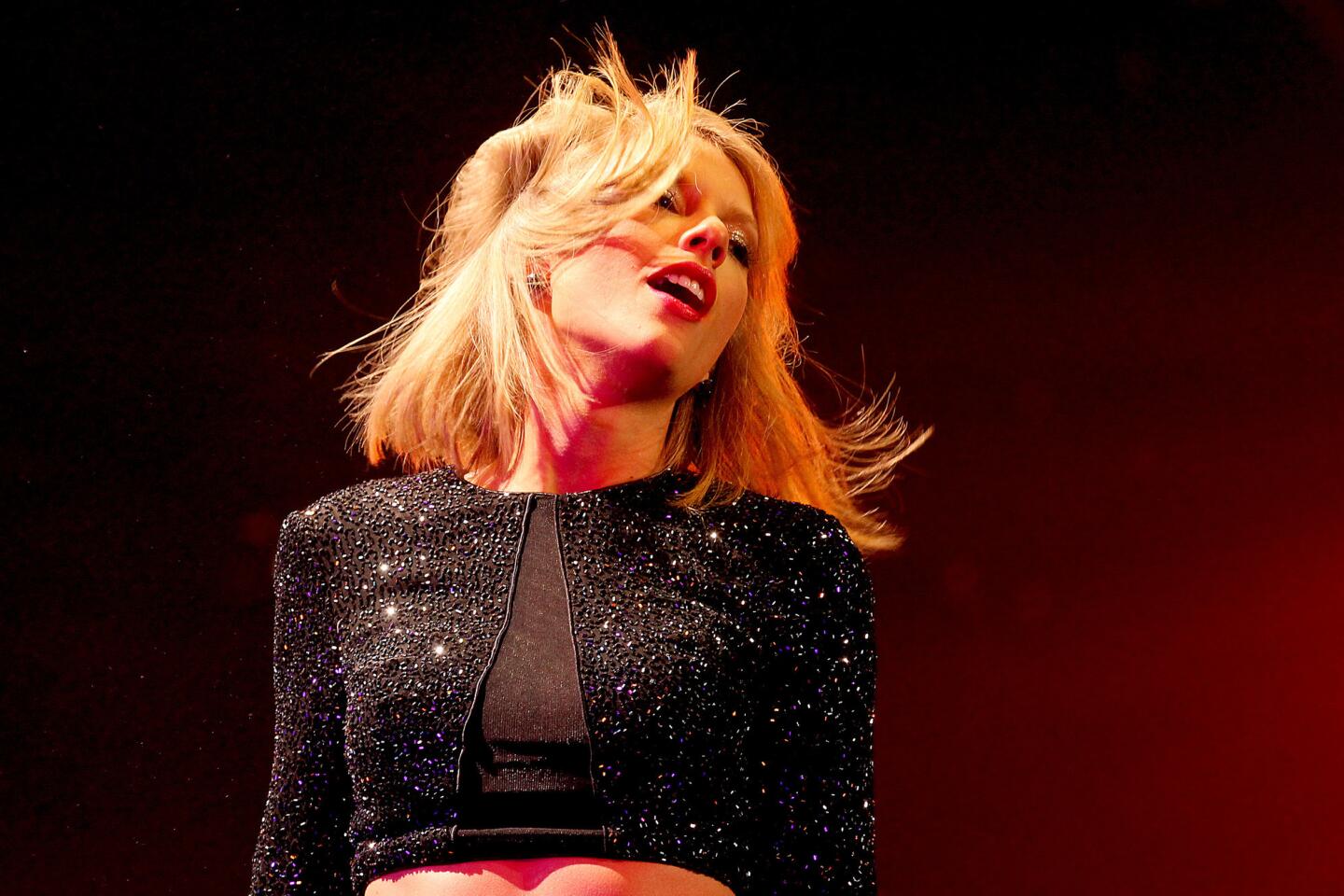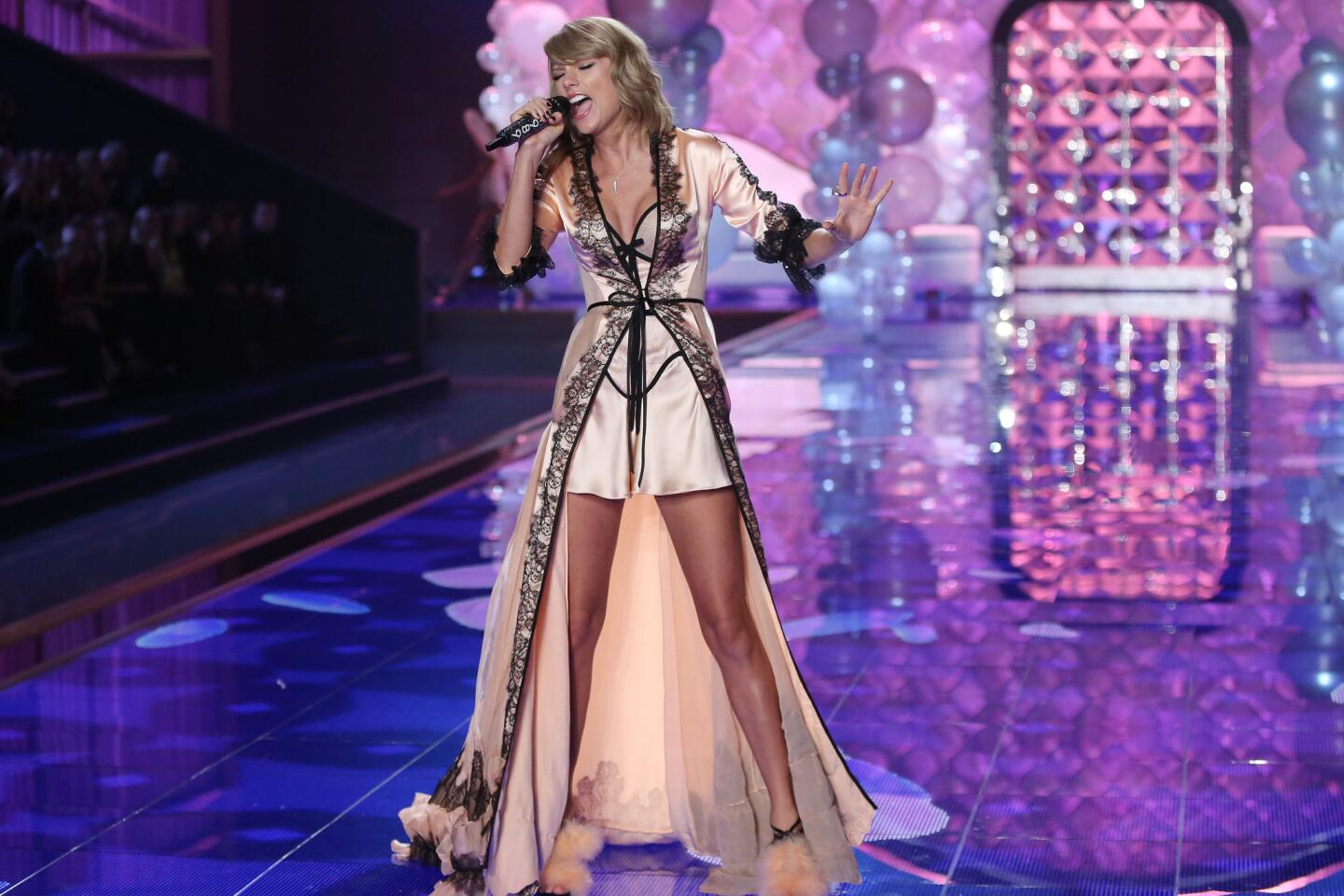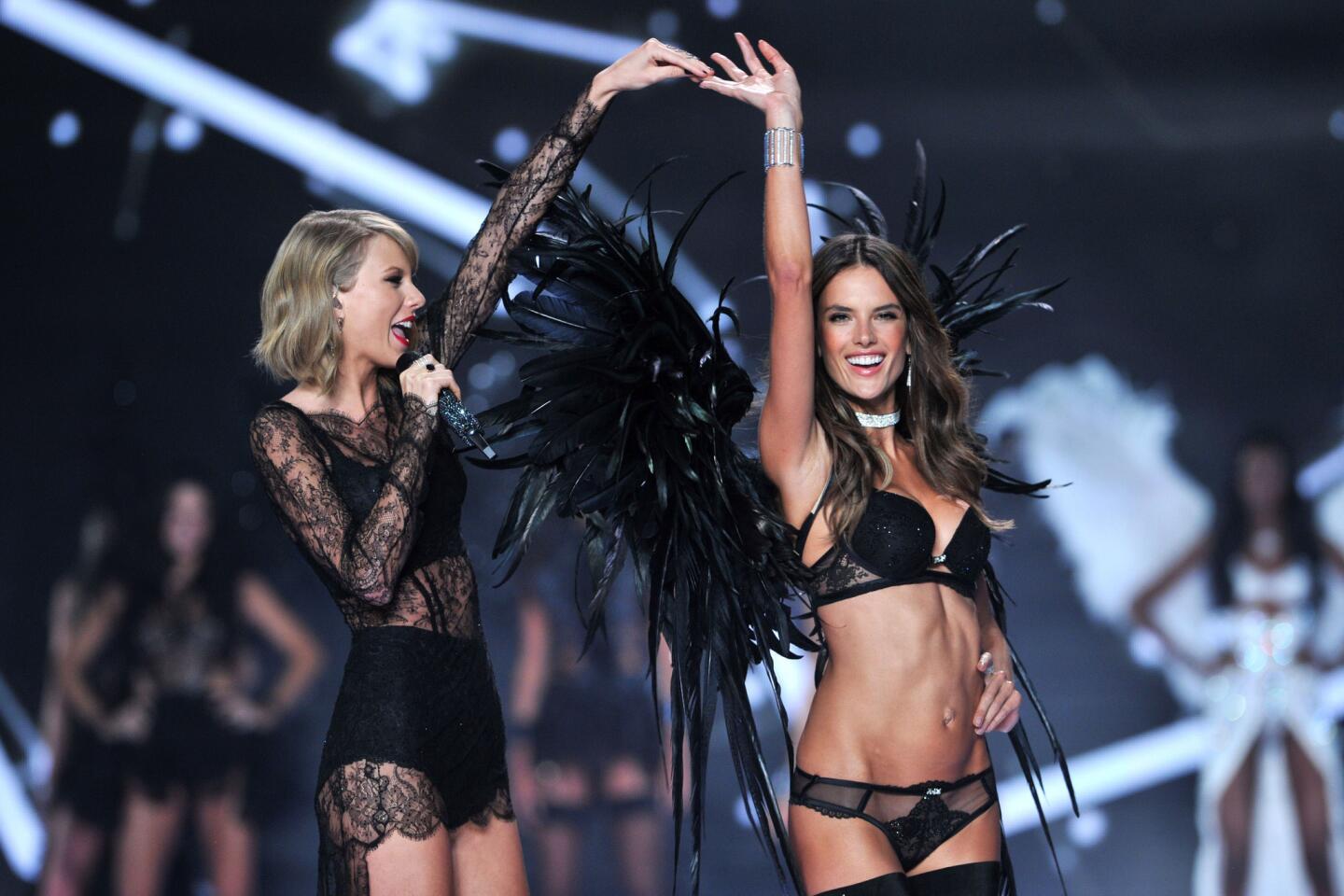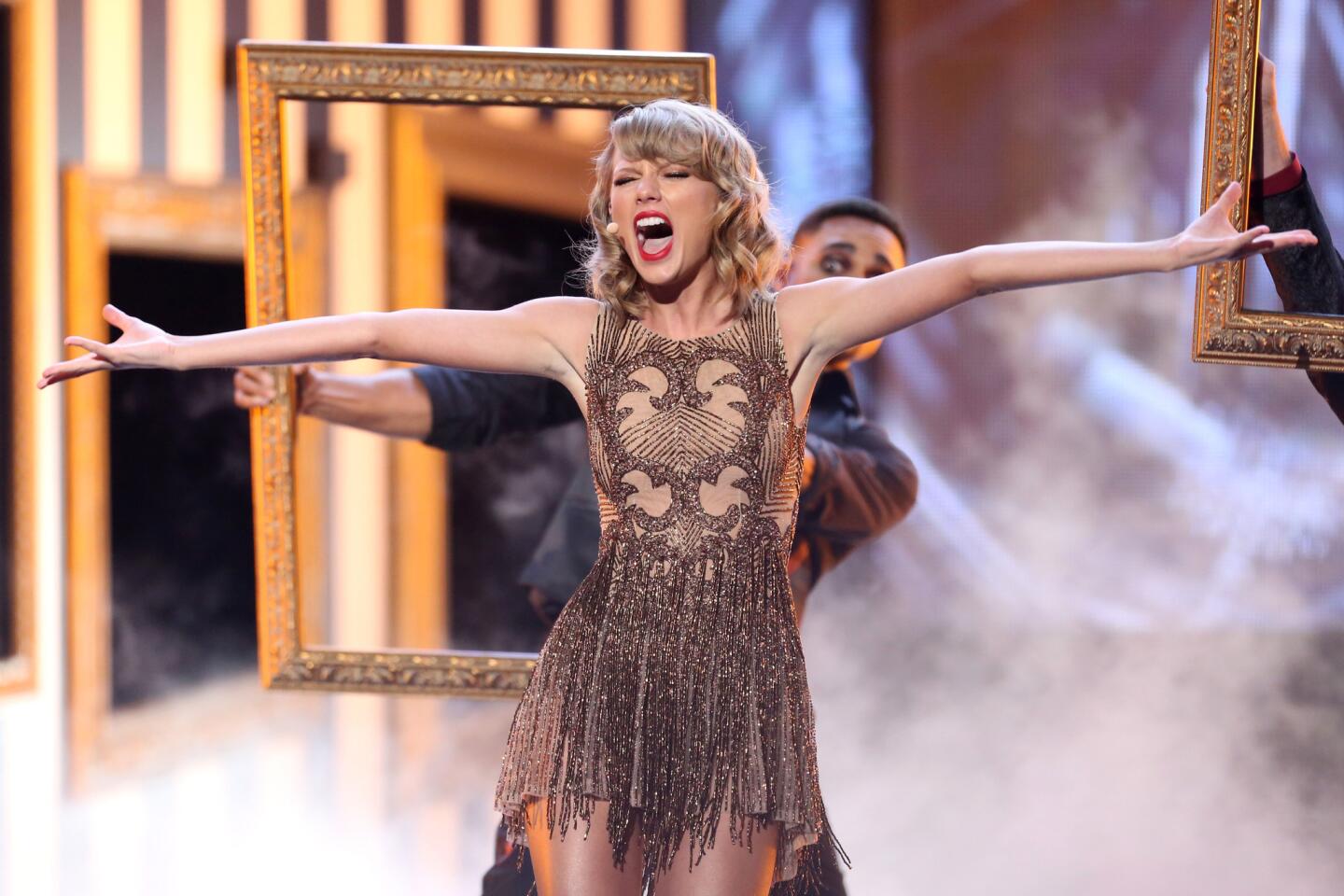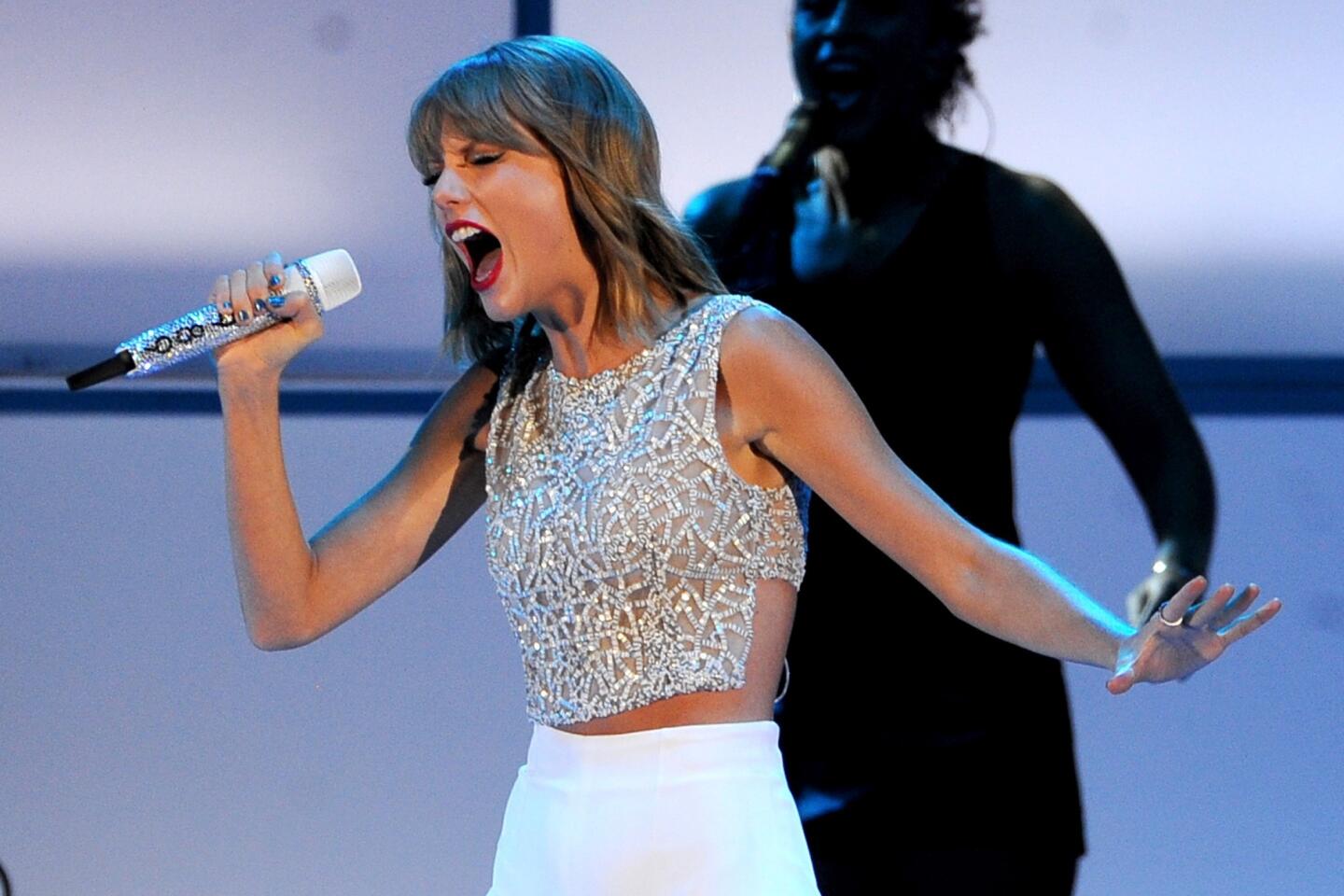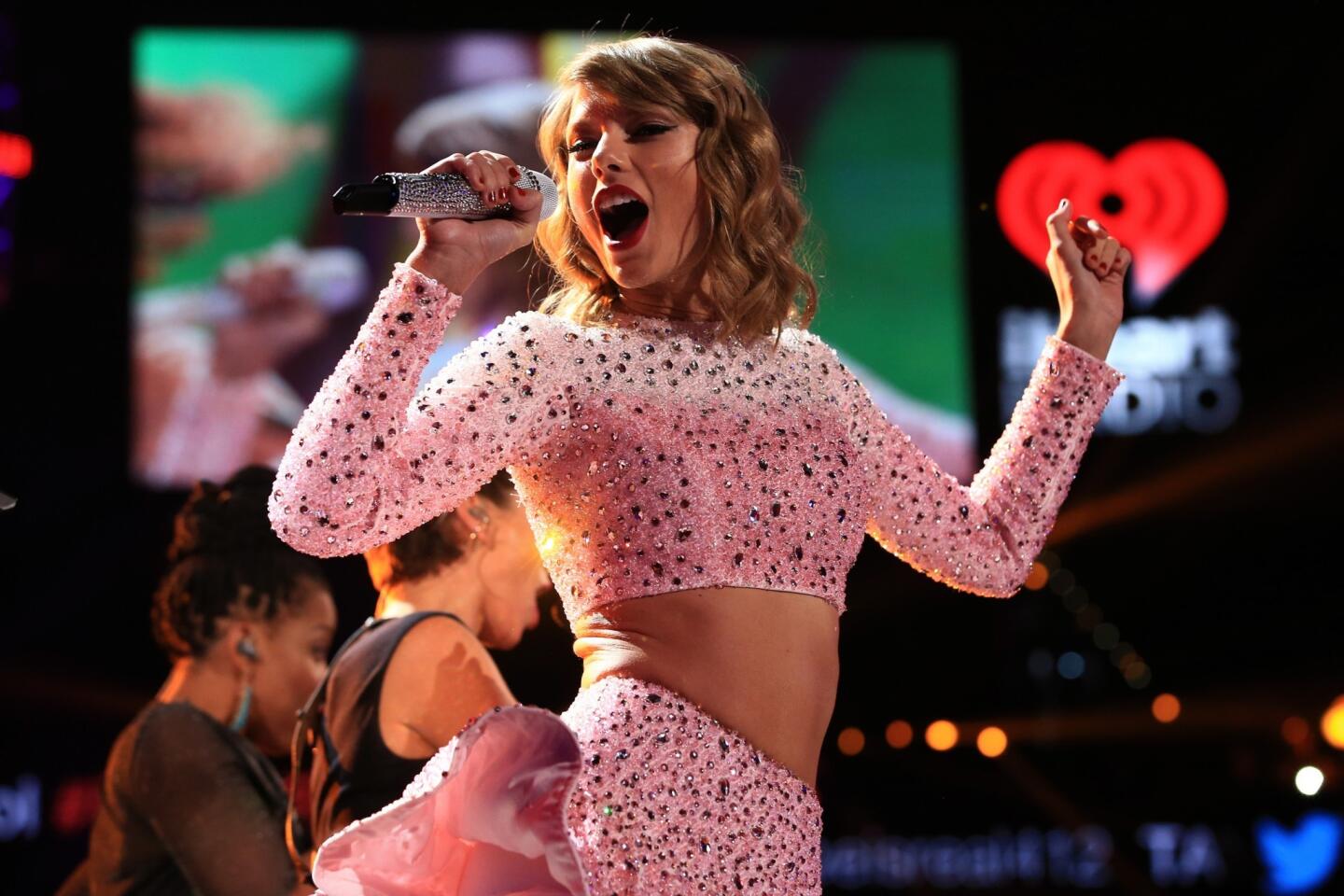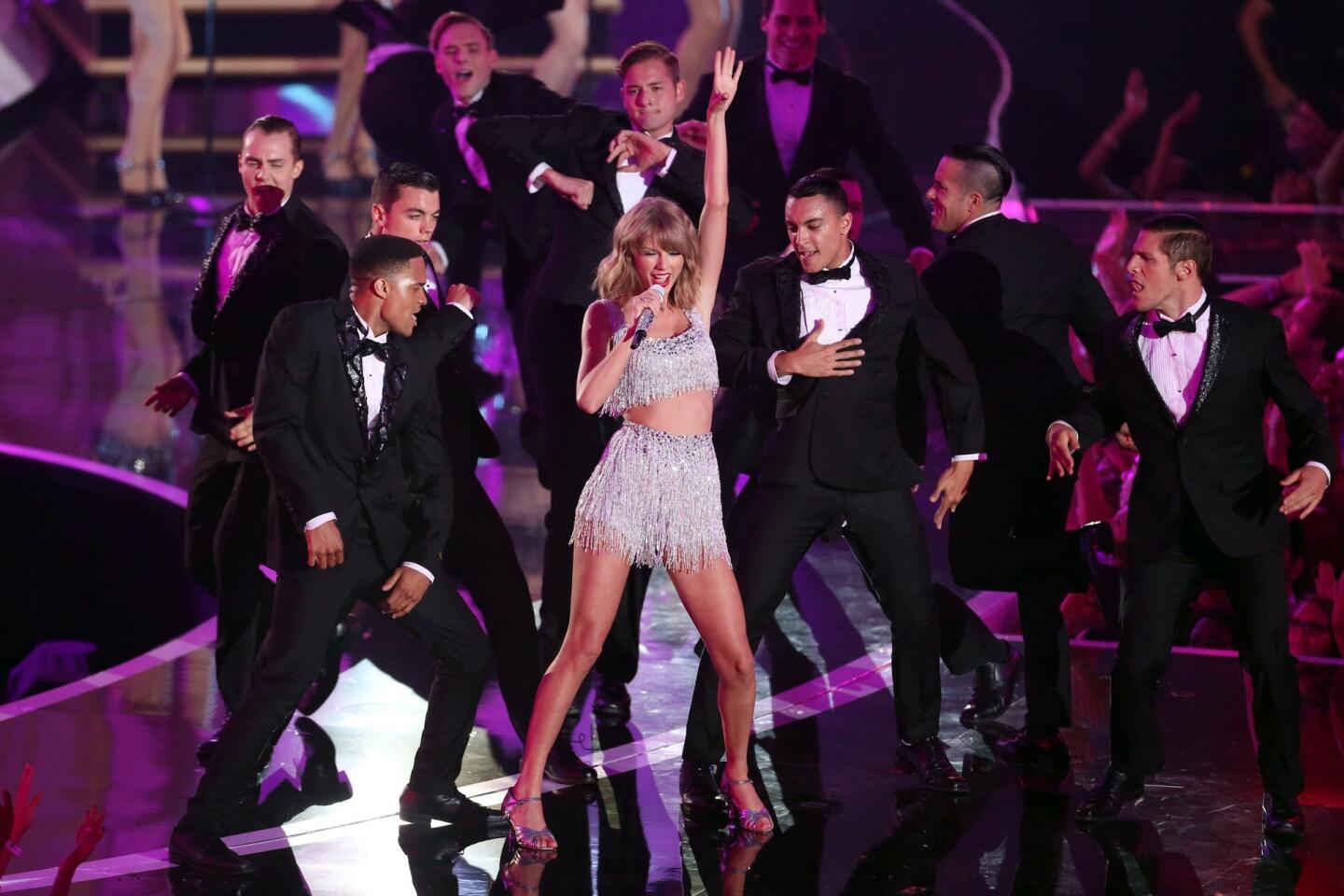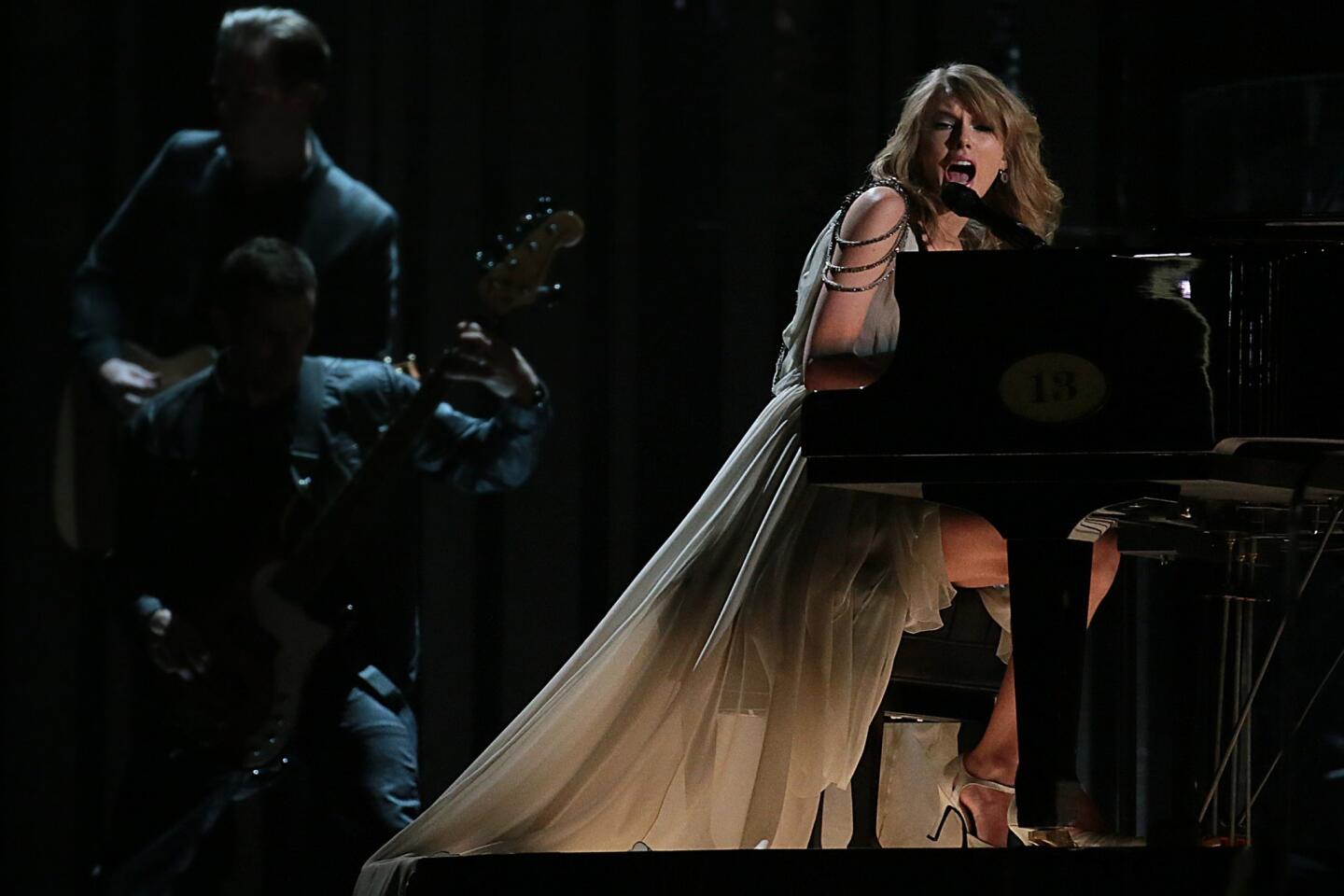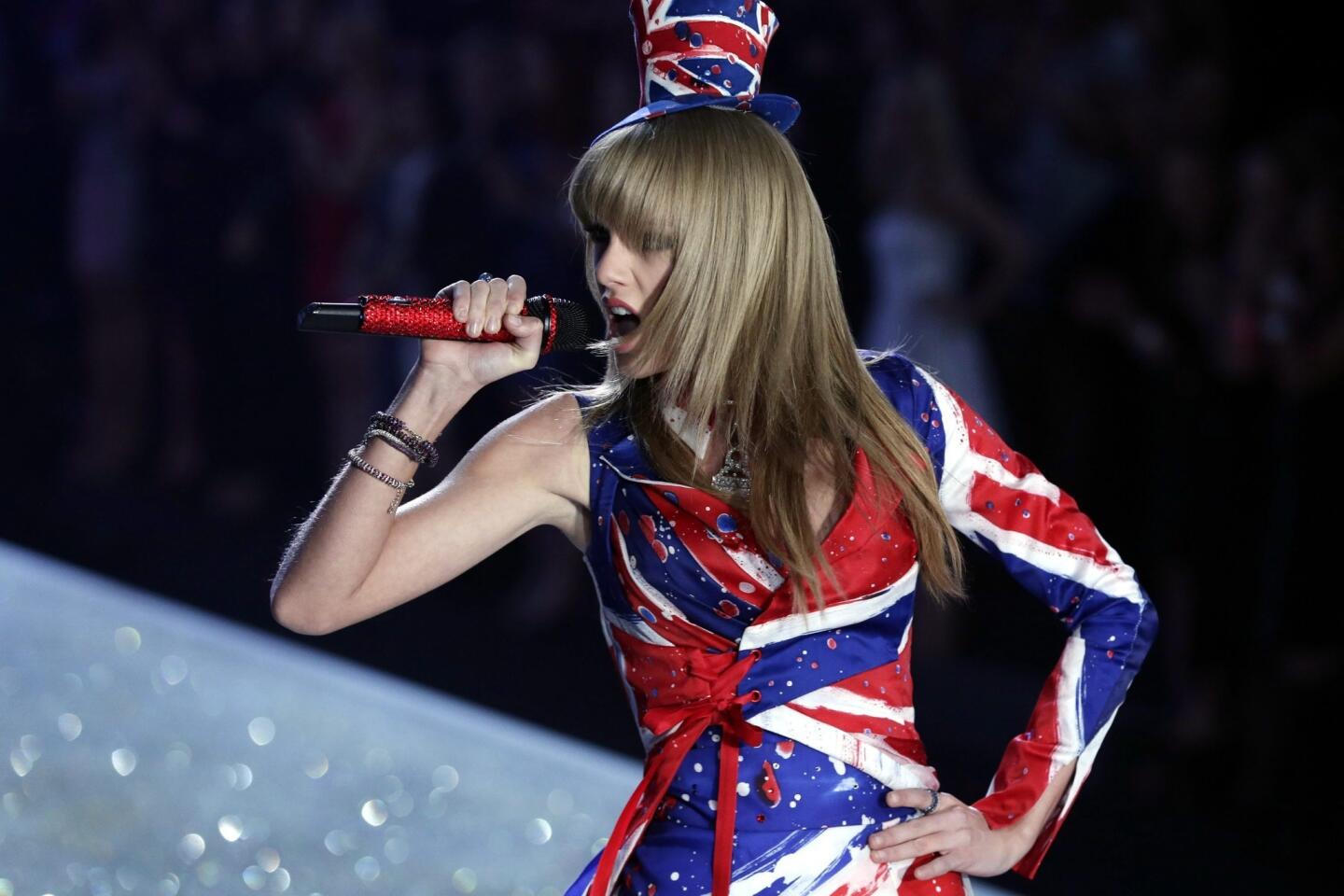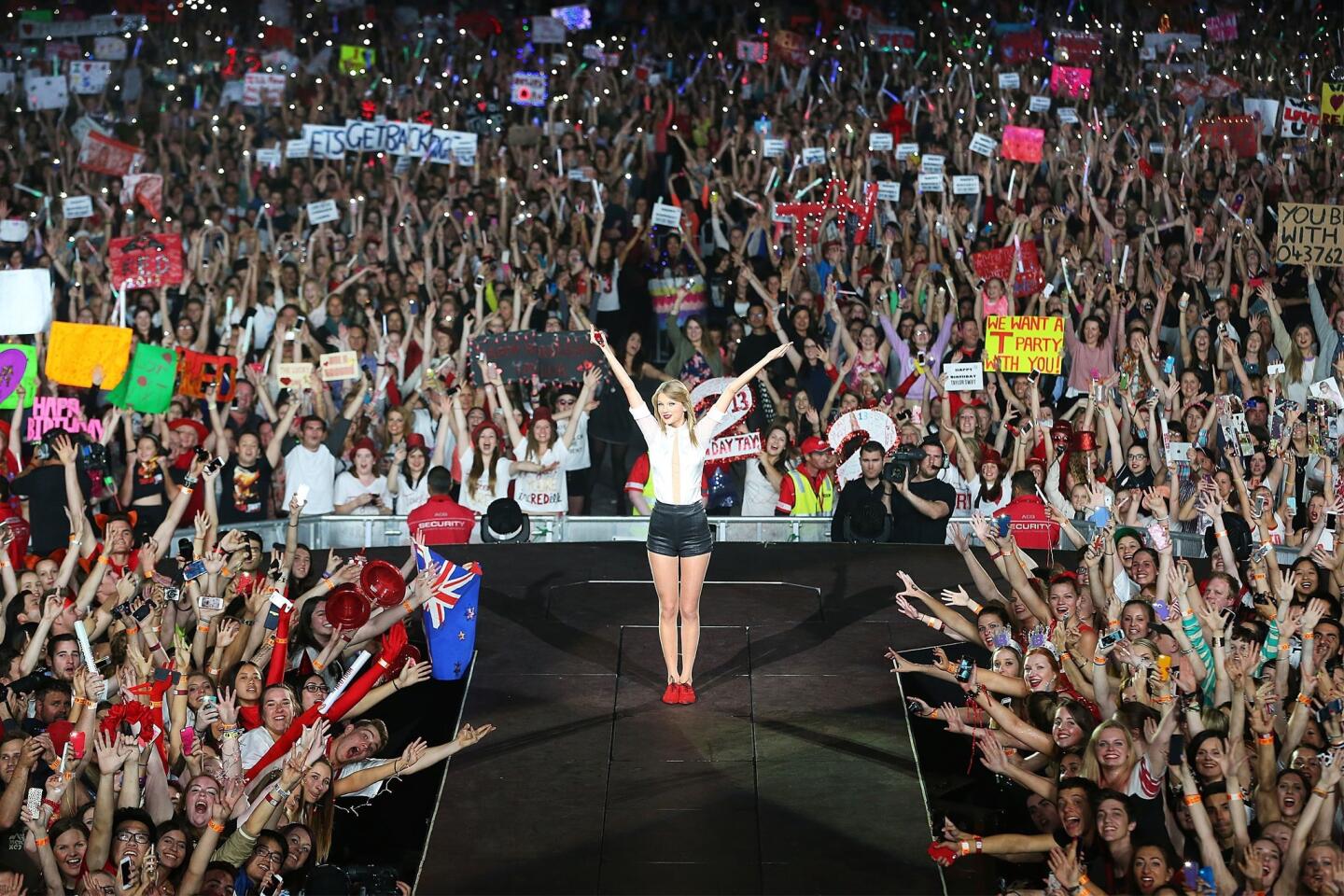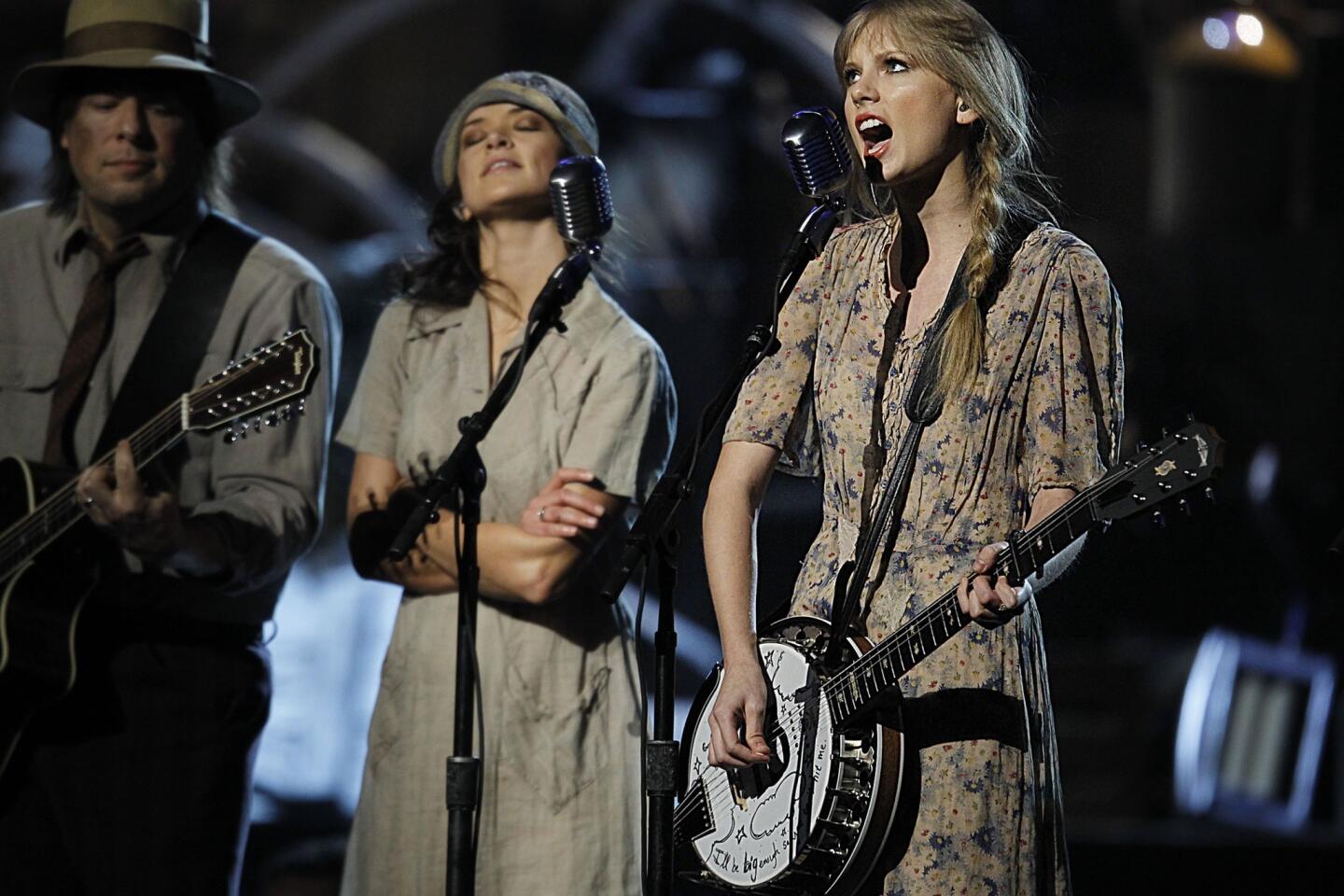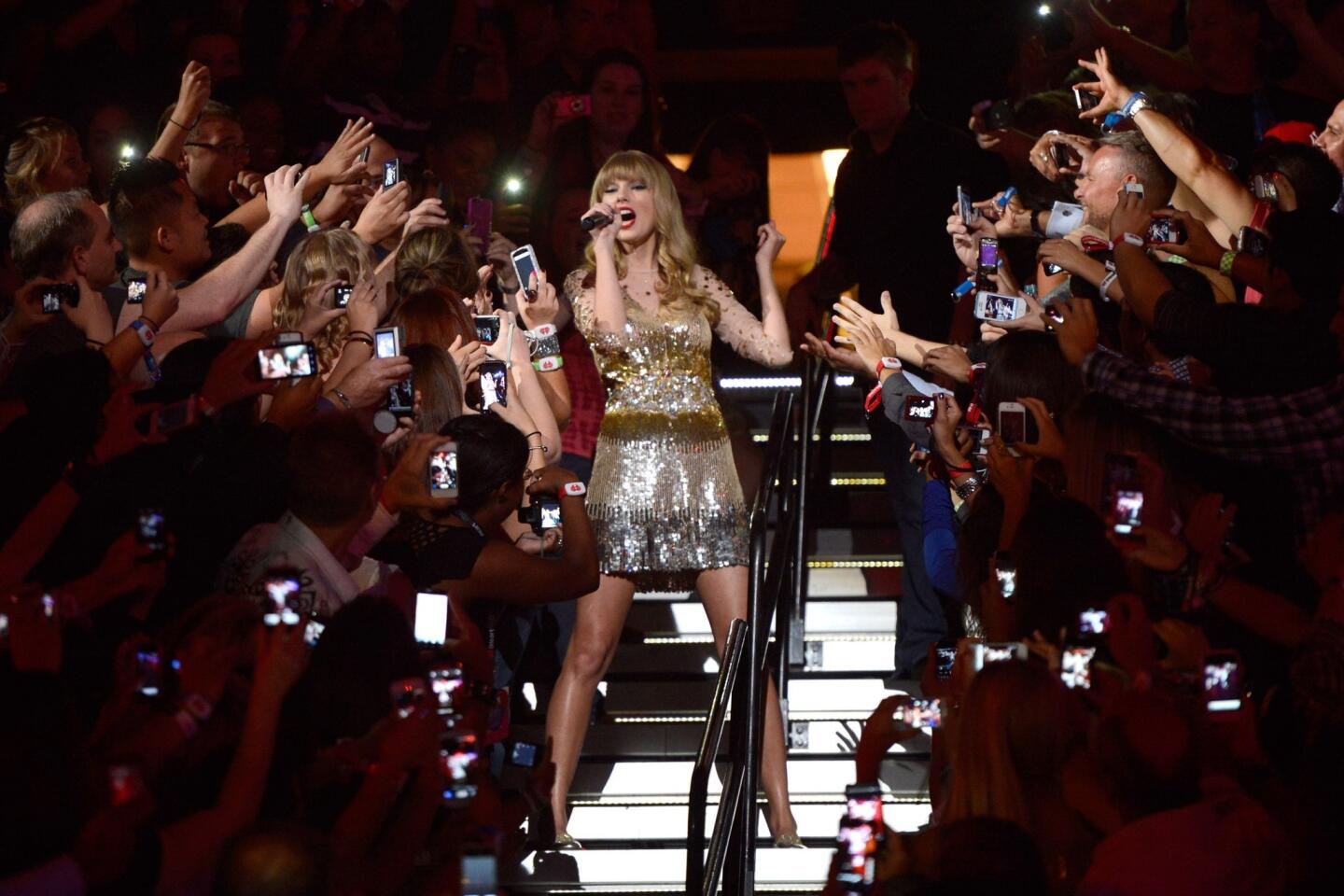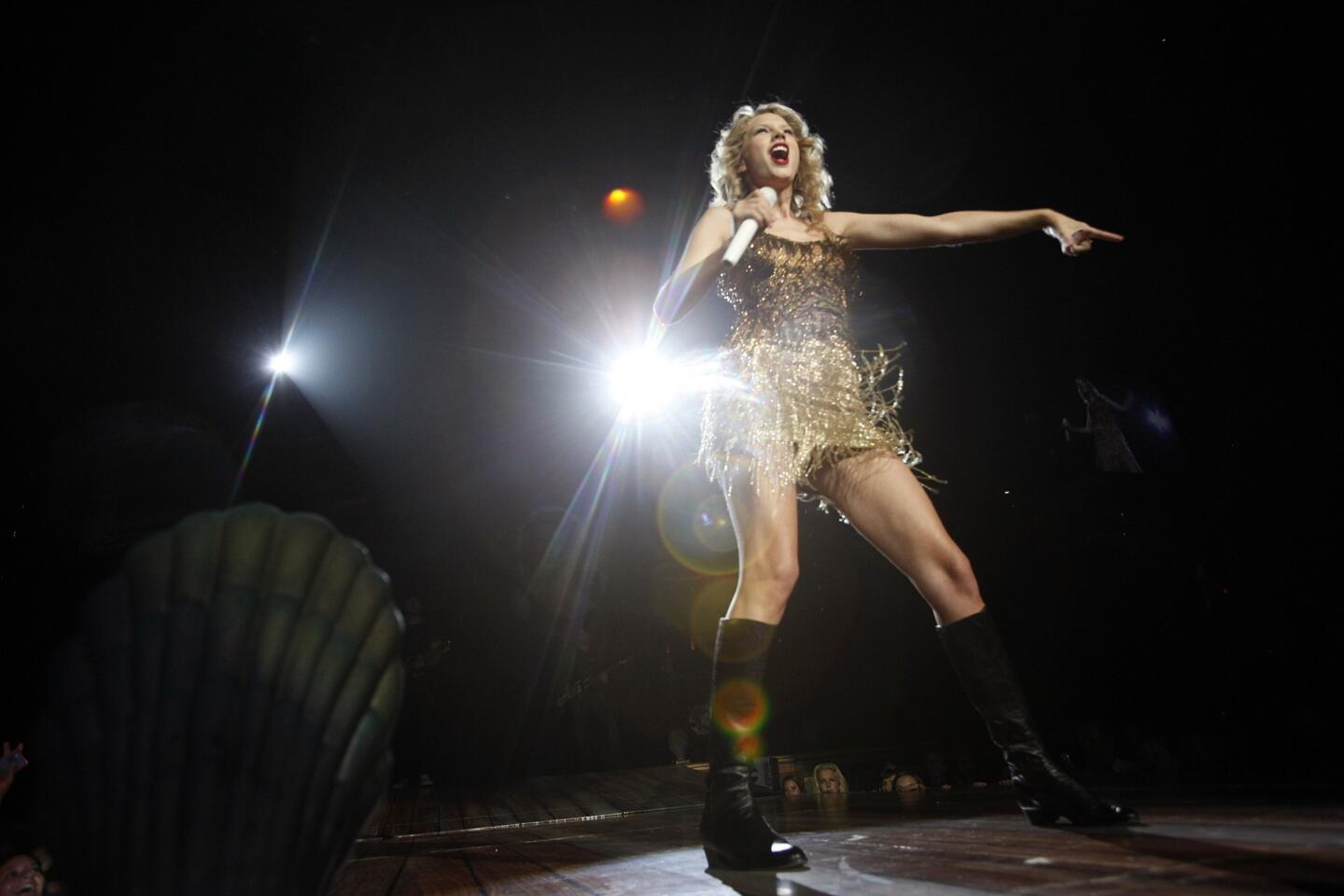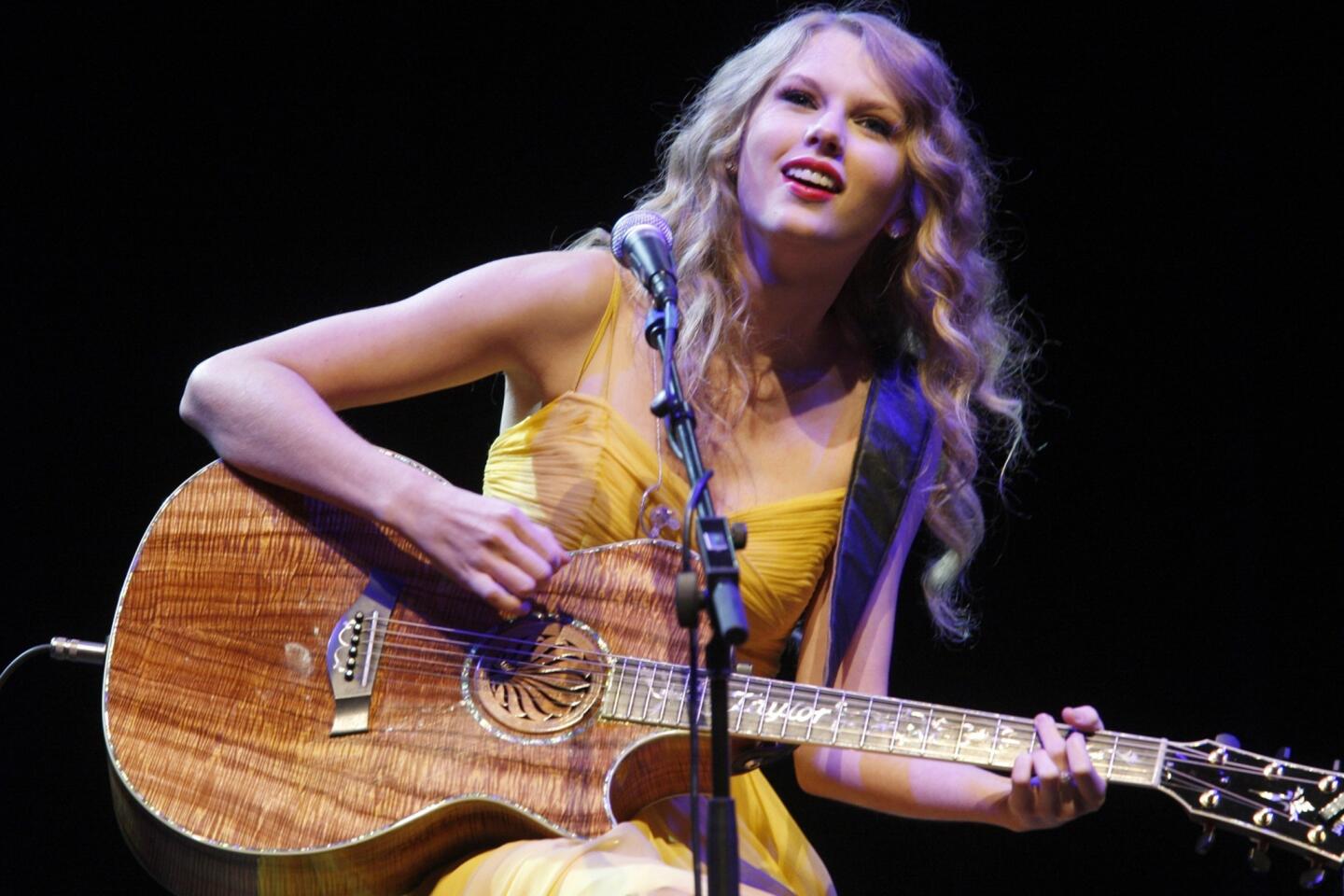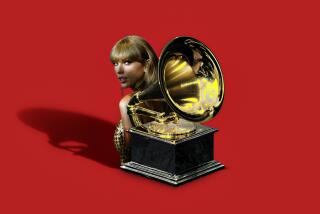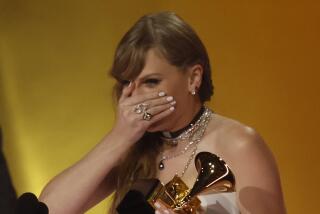#GrammysSoWhite? Pondering a clean sweep by Taylor Swift
Could winning at the Grammys register as a loss for Taylor Swift?
Last summer the pop superstar suffered a rare defeat when she got into it with Nicki Minaj on Twitter.
You remember this. After not being nominated for video of the year at the MTV Video Music Awards, Minaj plainly described what she viewed as a kind of institutional bias. “If your video celebrates women with very slim bodies,” she tweeted, “you will be nominated for vid of the year.”
FULL COVERAGE: Grammy Awards 2016
That’s when Swift, whose “Bad Blood” video features many such bodies (and earned just such a nomination), sensed bait in the water and told Minaj she’s “done nothing but love & support you” and that maybe “one of the men took your slot.” Minaj responded by saying she hadn’t been aiming for Swift -- her target was an industry that consistently rewards one group over another.
It got worse, with Swift eventually encouraging Minaj to join her at the podium if she won. “You’re invited to any stage I’m ever on,” Swift wrote.
Now Swift is poised to revive the issue at Monday’s Grammy Awards, where she’s nominated for seven prizes, including the prestigious album of the year for “1989.”
See more of Entertainment’s top stories on Facebook >>
A true-blue blockbuster that’s sold more than 5 million copies and spawned a string of radio hits, “1989” is widely tipped as the favorite in that category, which also includes the Weeknd’s “Beauty Behind the Madness,” Chris Stapleton’s “Traveller,” the Alabama Shakes’ “Sound & Color” and most significantly, “To Pimp a Butterfly,” the searing, proudly African American masterpiece by the Los Angeles rapper Kendrick Lamar.
But a not-so-funny thing happened on the way to Swift’s fait accompli: The nominations for the Academy Awards were announced, and for the second year in a row, not a single person of color made it into the four acting categories. The outcome led to a quick resurgence of 2015’s #OscarsSoWhite protest online and to widespread hand-wringing over how the entertainment industry is stifling diversity in its ranks.
As a result, Taylor Swift finds herself in a tough spot, at least as far as the optics are concerned. If she wins Monday -- which is to say, if she beats Lamar -- she risks being seen as a happy beneficiary (or perhaps even an agent) of show-biz prejudice, a critique that likely still haunts her after the episode with Nicki Minaj.
The situation invokes what we might call the Kanye corollary after the rapper’s infamous outburst at the 2009 VMAs, in which he interrupted an acceptance speech by Swift to announce that Beyoncé had been robbed. (The conflict between the two artists resurfaced again online Friday in the wake of Kanye’s reference to Swift in a less-than-flattering lyric on his upcoming album.)
Because awards tell us which works of art matter in a given year, Kanye West’s thinking goes, they should recognize the works of art that are important. “I just would like for the statistics to be more accurate,” he told the New York Times in 2013.
That belief is presumably what led West to another awards-show interruption at last year’s Grammys, when he leaped onstage during Beck’s acceptance of his album of the year award (for “Morning Phase,” which beat Beyoncé’s self-titled album.)
Beck’s victory was less a product of any structural racism within the Recording Academy than of the organization’s commitment to old-fashioned craftsmanship.
“Morning Phase” won for the same reasons that Herbie Hancock’s “River: The Joni Letters” and Steely Dan’s “Two Against Nature” did in previous Grammy Awards: for finely wrought arrangements, exceptional playing and the kind of careful engineering that promotes further employment of recording professionals.
But there’s really no way to argue that Beck’s very thoughtful, very beautiful album made a more significant impact on pop culture than Beyoncé’s, the latter of which reset long-held ideas about what black pop sounds like and -- thanks to the album’s surprise release -- how music should enter the marketplace in the digital age.
You could tell that Beck kind of knew it too from the way he half-apologized for being called onstage; at one point, he even encouraged West to come forward.
Swift, in contrast, needn’t say she’s sorry if “1989” is named album of the year. As impressive creatively as it was commercially, Swift’s record moved the cultural needle in lots of different ways, from its canny recycling of various ’80s-pop textures to its shrewd observations on modern celebrity. The album mattered, even by Kanye West’s standards.
Yet its coronation at the expense of “To Pimp a Butterfly” raises the question of whether the Grammys -- whether all awards shows -- are adequately equipped to recognize artistic achievement that falls outside a narrowly defined lane.
Not unlike “Straight Outta Compton,” Lamar’s album documents the complexity of black life on its own terms. It’s not attempting to translate an experience for the understanding of a disinterested audience.
And, sure, “To Pimp a Butterfly” was recognized as a contender for album of the year, which reflects its esteem among Recording Academy members. Lamar leads this year’s Grammy field with 11 nominations -- one short of tying Michael Jackson’s record. But to the extent that a trophy has any meaning, it’s actually winning the thing that indicates what a given body of voters deem worthy of the historical record.
Two years ago, hip-hop fans weren’t outraged by the fact that Macklemore, a white rapper known for sidestepping many of the genre’s current traditions, was nominated in the rap categories. The sticking point came when he won those honors, beating out a range of nominees, including the heavily favored Lamar, who did more to shape the form that year.
In that instance, the Recording Academy was essentially saying: Rap is at its best at its least rap-like. Macklemore clearly wasn’t the greatest. With his throwback sound, his earnest humanism -- and, yes, the pale features that doubtless reminded voters of the multiple Grammy-winning Eminem -- he simply came closest to fulfilling an established way of thinking about greatness.
Swift, for all her talent, stands only to gain from that self-reinforcing value system. And that’s a crown that should make any head uneasy.
Twitter: @mikaelwood
ALSO:
How the Weeknd got his revenge and became one of the biggest pop stars
Lady Gaga and Diane Warren find healing power in ‘Til It Happens to You’
10 essential artists who helped Kendrick Lamar shape his Grammy-nominated ‘To Pimp a Butterfly’
How the Grammys became cool (and what the Oscars can learn)
More to Read
The biggest entertainment stories
Get our big stories about Hollywood, film, television, music, arts, culture and more right in your inbox as soon as they publish.
You may occasionally receive promotional content from the Los Angeles Times.
